-
Russia is really in pain! Zelenskyy on the effectiveness of sanctions #shorts
-
Ukraine strikes Russian rear! Crimea is on fire, and allies invest in drones | News Pulse
-
Ukrainian forces hit Russian command post in occupied Donetsk Oblast, General Staff says
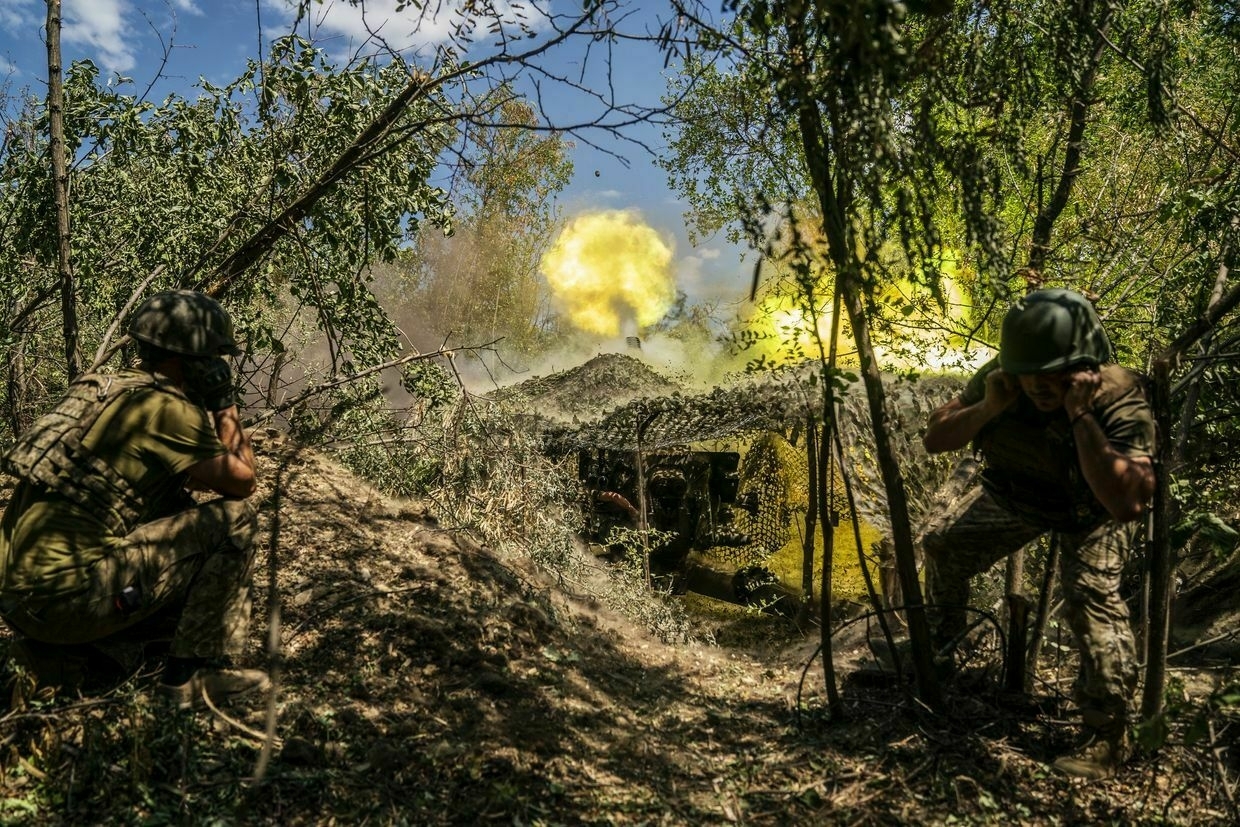
Ukraine struck a command post of the 8th Combined Arms Army of the Russian Armed Forces in the Russian-occupied part of Donetsk Oblast, Ukraine’s General Staff reported on July 1, a day after the attack.
On the evening of June 30, explosions were heard in the Russian-occupied Donetsk, the Russian Telegram channel Shot reported. According to residents, several fires were spotted in different parts of the city.
The attack has significantly hampered Russia’s ability to plan and conduct operations in the Pokrovsk and Toretsk areas of the front line, the General Staff’s statement read.
Russian losses are still being determined.
Ukraine’s military regularly strikes military targets in Russian-occupied territories and deep within Russia in an attempt to diminish Moscow’s fighting power as it continues its war against Ukraine.
Russia has for months focused its offensive efforts on the embattled town of Pokrovsk in Donetsk Oblast and has recently been escalating attempts to break through to neighboring Dnipropetrovsk Oblast, a region that has not yet seen combat.
Ukraine denied reports that Russian forces breached the regional border in May and June.
Operation Spiderweb and Russia’s record drone assault – Ukraine in photos, June 2025For Ukraine, June began with a celebration — not the one the whole country longs for, victory over Moscow — but a celebration of one of the most stunning drone attacks on Russia, known as Operation Spiderweb. On June 1, Ukrainian drones targeted four Russian air bases – two of them thousands ofThe Kyiv IndependentIrynka Hromotska
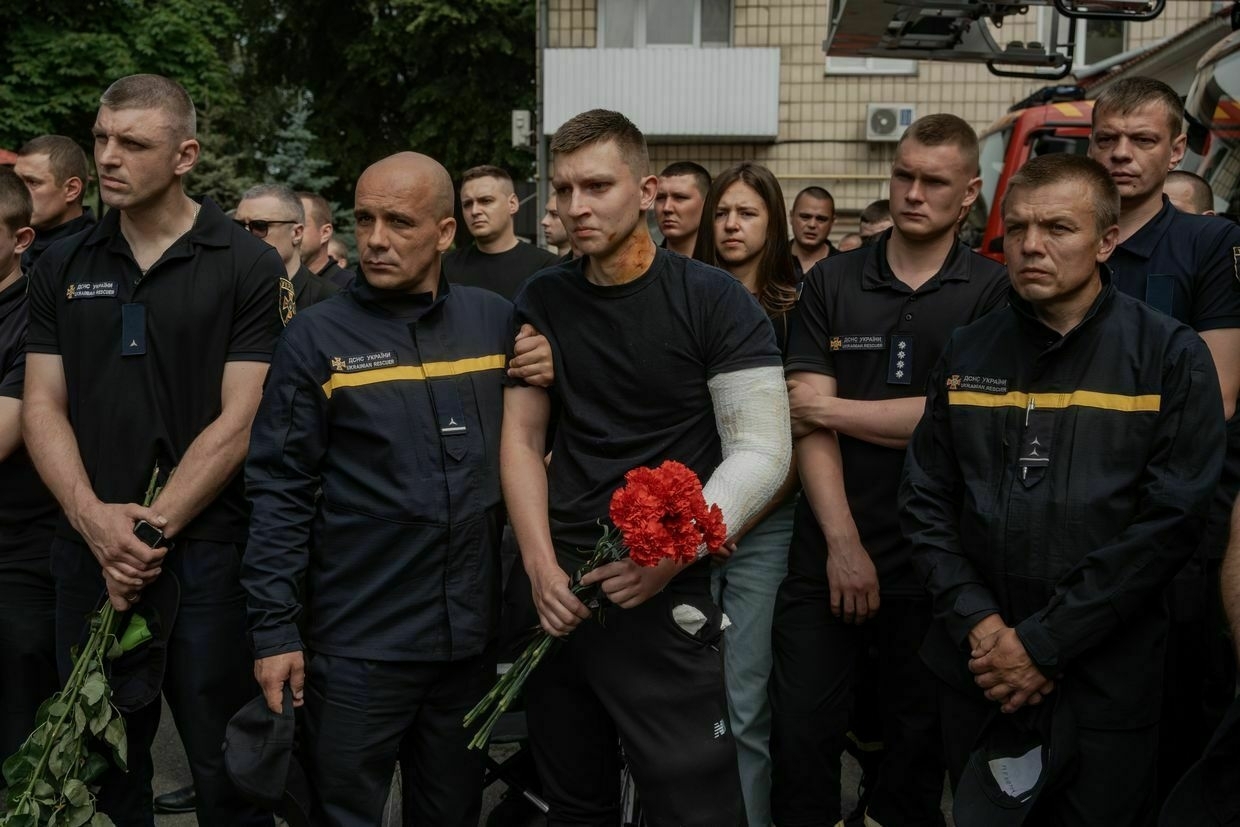
-
Azerbaijan-Russia tensions escalate as Baku accuses Moscow of intentional killing of its citizens
Azerbaijan has leveled grave accusations against Russia, alleging the deliberate murder of its citizens. An autopsy conducted in Baku revealed that the Azerbaijani nationals died due to severe trauma inflicted by multiple blunt force impacts.
In a striking development, Azerbaijan has opened a criminal investigation on counts of "intentional murder" concerning two members of its diaspora in Yekaterinburg, as reported by the General Prosecutor's Office on Tuesday, July 1.
The Azerbaijani authorities have directly accused members of the Russian law enforcement agencies. The investigation stems from charges related to crimes committed outside the country, including "intentional murder by a group of people with particular cruelty, abuse of power, and torture resulting in death."
The incident in question occurred on the morning of June 27 in Yekaterinburg during a joint operation conducted by the Russian National Guard, the Ministry of Internal Affairs, and the Federal Security Service (FSB) in the Sverdlovsk region. Azerbaijani citizens and those of Azerbaijani descent were detained on suspicions of involvement in prior offenses. Among them were the brothers Ziyaddin and Guseyn Safarov, who were found dead.
The Azerbaijani General Prosecutor's Office believes the brothers were beaten to death intentionally. An autopsy in Baku confirmed that severe injuries from "multiple blunt force impacts" were the cause of death.
According to the Azerbaijani forensic specialists, 60-year-old Guseyn Safarov had a broken nose, chest deformity, and hemorrhages in the genital area. An autopsy revealed extensive hemorrhaging, fractured ribs, pleura and lung tears, as well as liver and abdominal damage. For 55-year-old Ziyaddin, hematomas and hemorrhages were found "throughout almost the entire body," including the genital and kidney areas. One rib was missing, and others were partially broken.
Azerbaijani experts concluded that the cause of death for both brothers was post-traumatic and hemorrhagic shock resulting from numerous severe injuries.
The Russian Investigative Committee, meanwhile, argued that one of the Safarov brothers died of heart failure, while the cause of the other's death is still under investigation.
On June 28, Azerbaijan's Foreign Ministry issued a statement concerning the events in Yekaterinburg that took place the previous day. The Azerbaijani officials expressed serious concern over the FSB-led operation on June 27 in Azerbaijani-populated districts, during which over 50 Azerbaijanis were held.
On Saturday, Azerbaijan's Foreign Ministry summoned Russia's chargé d'affaires in Baku, Petr Volokhov, demanding a thorough investigation and accountability for those responsible.
Maria Zakharova, the spokesperson for Russia's Ministry of Foreign Affairs, did not comment on the deaths of the Azerbaijanis but stated that the raids are part of a probe into earlier crimes.
In response, Azerbaijan canceled all cultural events involving Russia, an action met with regret by the Kremlin.
Tensions between Baku and Moscow have been simmering for several months. In May, Azerbaijan's President Ilham Aliyev declined an invitation to Moscow's May 9 Victory Day parade, opting instead to host Ukrainian Foreign Minister Andriy Sybiha in Baku the same month.
The bilateral relationship further strained in December 2024 after a crash involving an Azerbaijani aircraft in Kazakhstan that resulted in 38 fatalities. Aliyev claimed the plane was shot down over Russia and accused the Kremlin of attempting to cover up the incident. President Vladimir Putin expressed sorrow, describing the event as a "tragic accident," yet stopped short of acknowledging Russia's responsibility.
-
Ukrainian missile strike on Donetsk kills Russian 8th Army commander
Colonel Ruslan Goryachkin, the commander of Russia's 8th Combined Arms Army, was killed in a Ukrainian missile strike using Storm Shadow missiles in Donetsk.
The precise hit on the Russian unit's headquarters occurred on the evening of June 30. The death of the high-ranking officer was reported by Ukrainian soldier and blogger Anatolii Shtefan (Shtirlitz).
Storm Shadow cruise missiles were launched toward Crimea, Donetsk, and Russia's Rostov region. The headquarters of the 8th Combined Arms Army, located in the Donetsk Institute of Non-Ferrous Metals building, near the local shopping mall, came under attack.
Reports from Abkhaz public forums confirm that Goryachkin died on June 30 while "performing his duty" in a combat zone. It is known that the officer was born and raised in Sukhumi, Abkhazia.
Goryachkin dedicated his life to the Russian army from a young age, rising through the ranks from cadet to army commander.
On the night of June 29, the Russian military carried out a massive attack on Ukraine. On that day, Russian forces launched 537 drones and missiles.
Additionally, in the early hours of July 1, Russian forces targeted Zaporizhzhia with Shaheds kamikaze drones, causing damage to private homes and businesses.
-
China sends military to Russia! What does China want to learn from the Kremlin? #shorts
-
Crimea strikes and Russia’s allies: what are China and North Korea planning? | Front News
-
US sanctions Russian IT company Aeza Group over ransomware operations
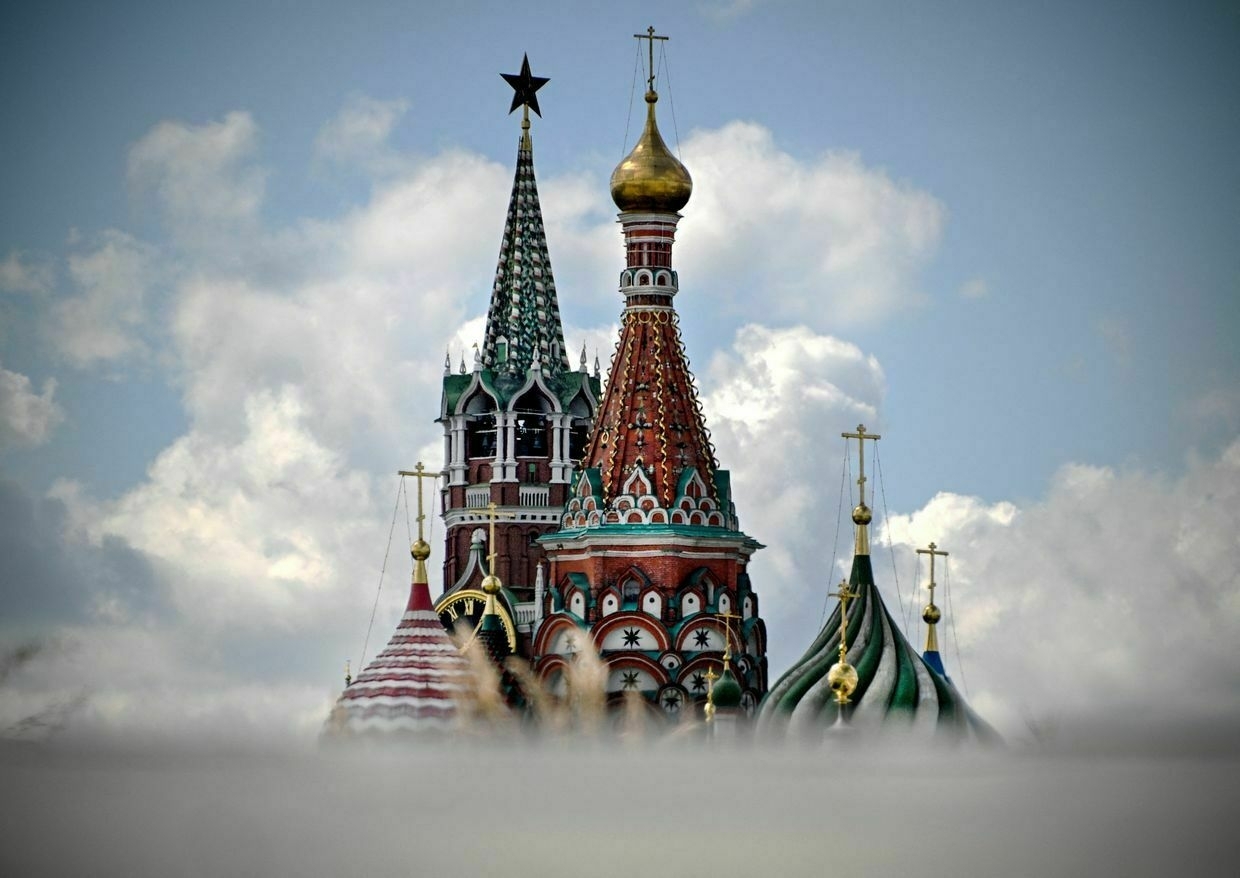
The U.S. Treasury Department’s Office of Foreign Assets Control (OFAC) has imposed sanctions on the Russian IT company Aeza Group for hosting infostealers and ransomware operations, according to a press release published on July 1.
Restrictions were imposed on two subsidiaries and four members of the Aeza Group’s management as well, the statement read.
The U.S. Treasury Department characterized Aeza as a “bulletproof hosting service” that provided services to the Meduza and Lumma infostealers, as well as to the BianLian and RedLine ransomware groups.
Aeza Group also hosted the Russian-language darknet marketplace for illegal drugs, BlackSprut.
According to the U.S. Treasury Department, Aeza Group sells access to specialized servers that help cybercriminals avoid detection and resist attempts by law enforcement agencies to suppress their criminal activities.
Sanctions against the company involve blocking all assets of the named individuals located in the U.S. Any legal entities that are owned, directly or indirectly, individually or in the aggregate, by 50% or more by one or more of the mentioned individuals are also blocked.
Violation of the U.S. sanctions may result in civil or criminal penalties.
The news comes as Ukraine continues to call on the U.S. to strengthen sanctions against Russia. Despite Russia’s refusal to accept the ceasefire proposal and its army’s ongoing advance across Ukrainian territory, the Trump administration has not yet imposed new restrictions.
Meanwhile, Senators Lindsey Graham (R) and Richard Blumenthal (D) introduced a bill to impose a 500% tariff on imports from countries that continue to buy Russian oil and raw materials.
The legislation currently has broad bipartisan support, with 82 out of 100 U.S. senators backing it. U.S. House Speaker Mike Johnson also voiced his support for the bill.
Ukraine’s new interceptor UAVs are starting to knock Russia’s long-range Shahed drones out of the skyRussia’s Shahed drone swarms are pummeling Ukraine on a nightly basis, inflicting ever more death and destruction in cities that had managed to carve out some sense of normalcy amid wartime. Civilian alarm has grown. With traditional air defense stockpiles running low, the government is banking on newly createdThe Kyiv IndependentKollen Post
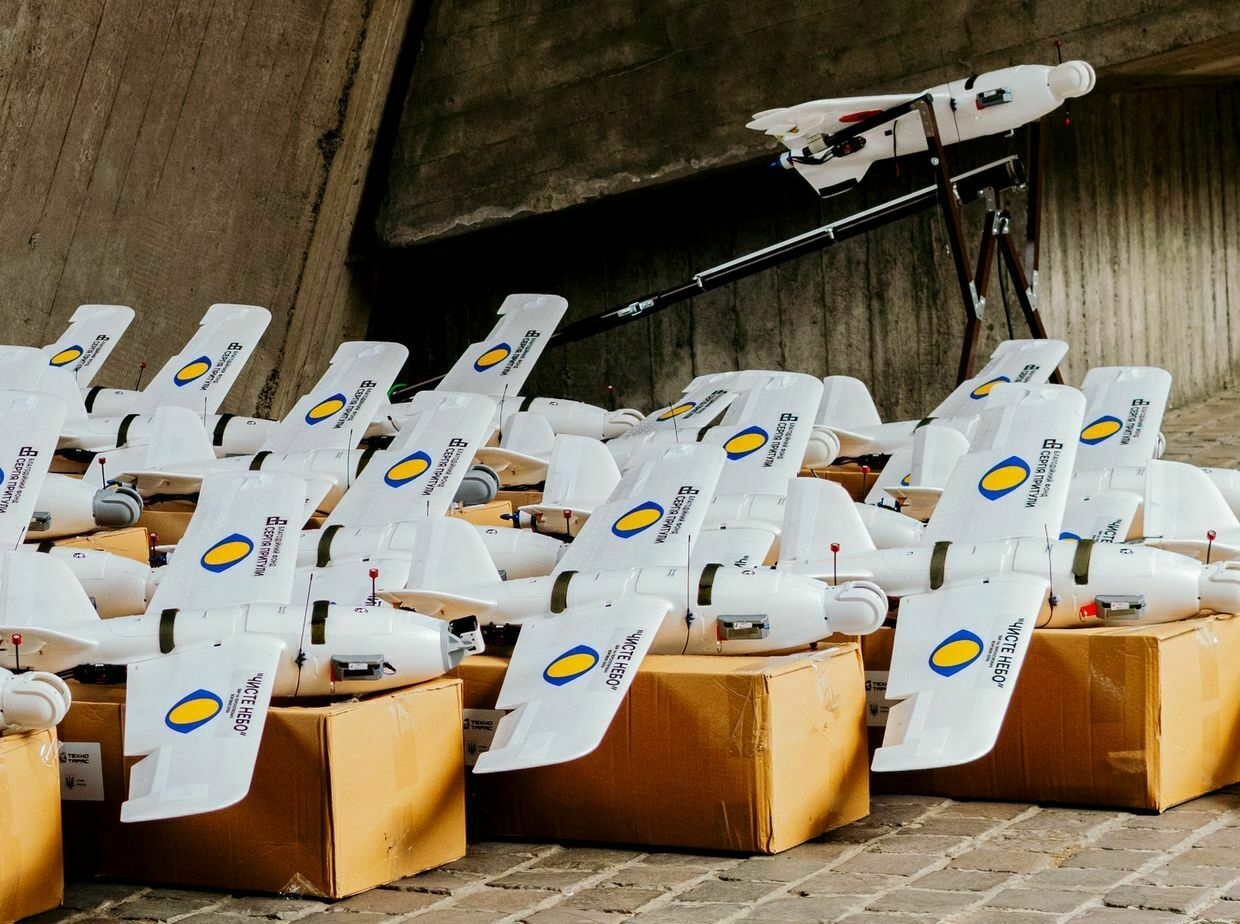
-
Putin, Macron hold first call since 2022, discuss wars in Ukraine, Middle East
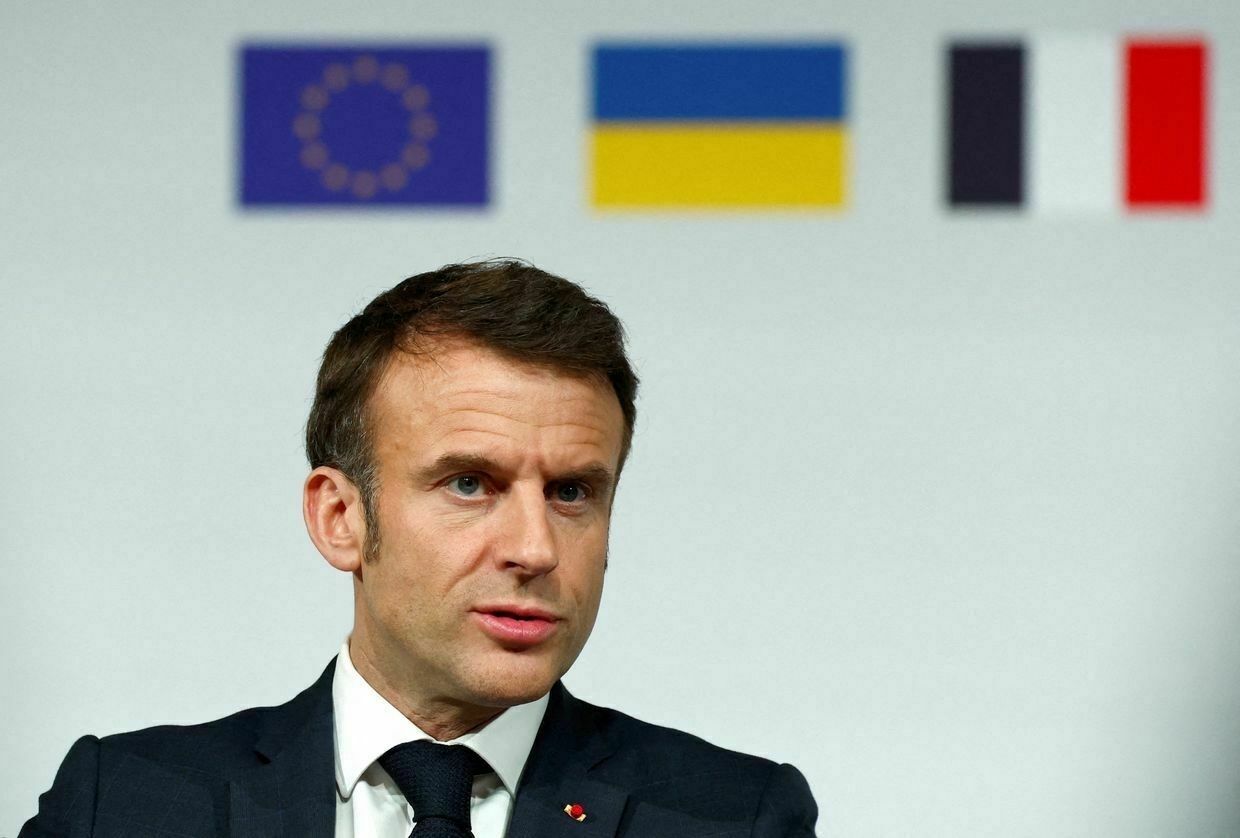
Editor’s note: This story is being updated.
French President Emmanuel Macron and his Russian counterpart Vladimir Putin held a call on July 1 for the first time since 2022, discussing Russia’s war against Ukraine and the conflict in the Middle East, the Kremlin’s press service reported.
The conversation between the two leaders took place as the Russian army continues to advance along the front line, trying to gain a foothold in Sumy Oblast and enter Dnipropetrovsk Oblast.
Moscow has repeatedly rejected the U.S.-backed ceasefire proposal, stalling peace talks with Ukraine.
Russia-Iran alliance wavers as Tehran suffers major blowsTehran, Russia’s main ally in the Middle East, has been dealt a heavy blow as Israel dismantled its network of proxies and then struck targets in Iran. The recent Iranian-Israeli war, which ended with a ceasefire on June 24, showed that the regional balance of power has shifted in Israel’s favor. This could have a major impact on Russian-Iranian relations as Moscow will have to recalibrate its approach to the region. Russian-Iranian cooperation is likely to continue but Iran’s ability to help The Kyiv IndependentOleg Sukhov
The Kyiv IndependentOleg Sukhov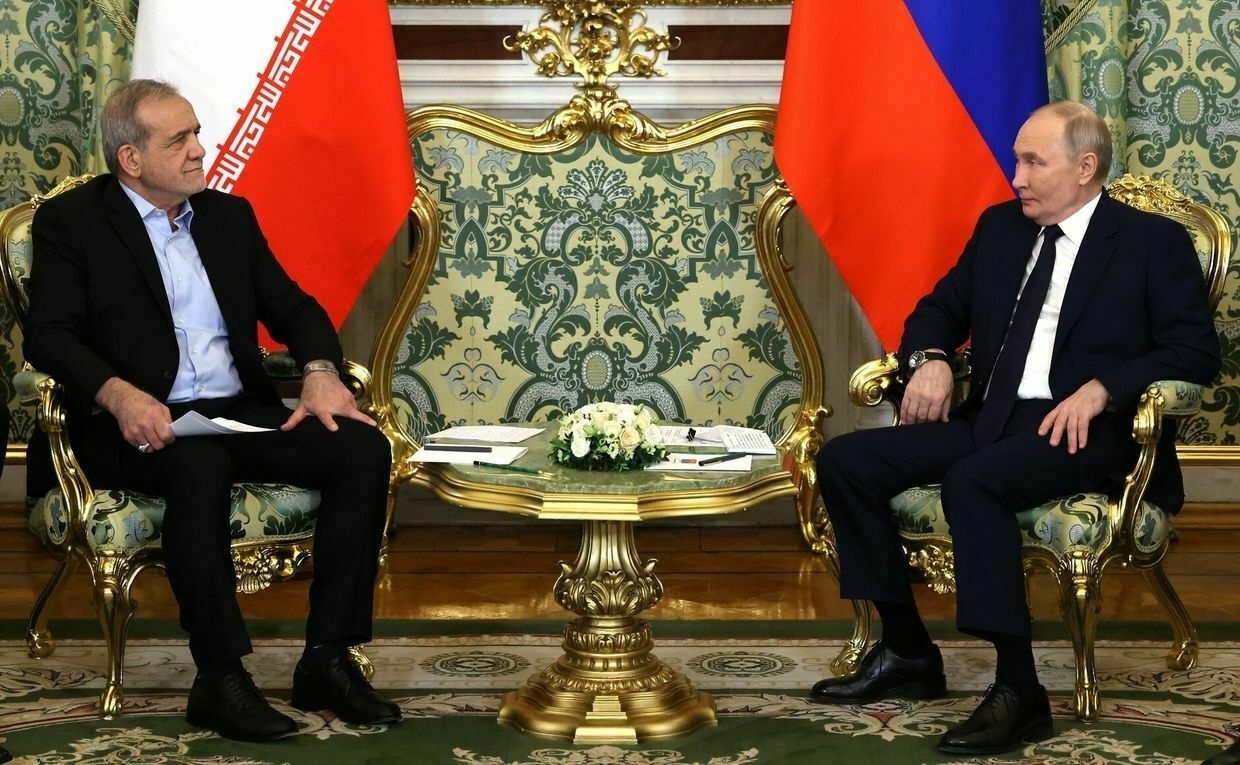
-
Ukraine's power exports surge 2.5 times, recovering to pre-Russian attack levels
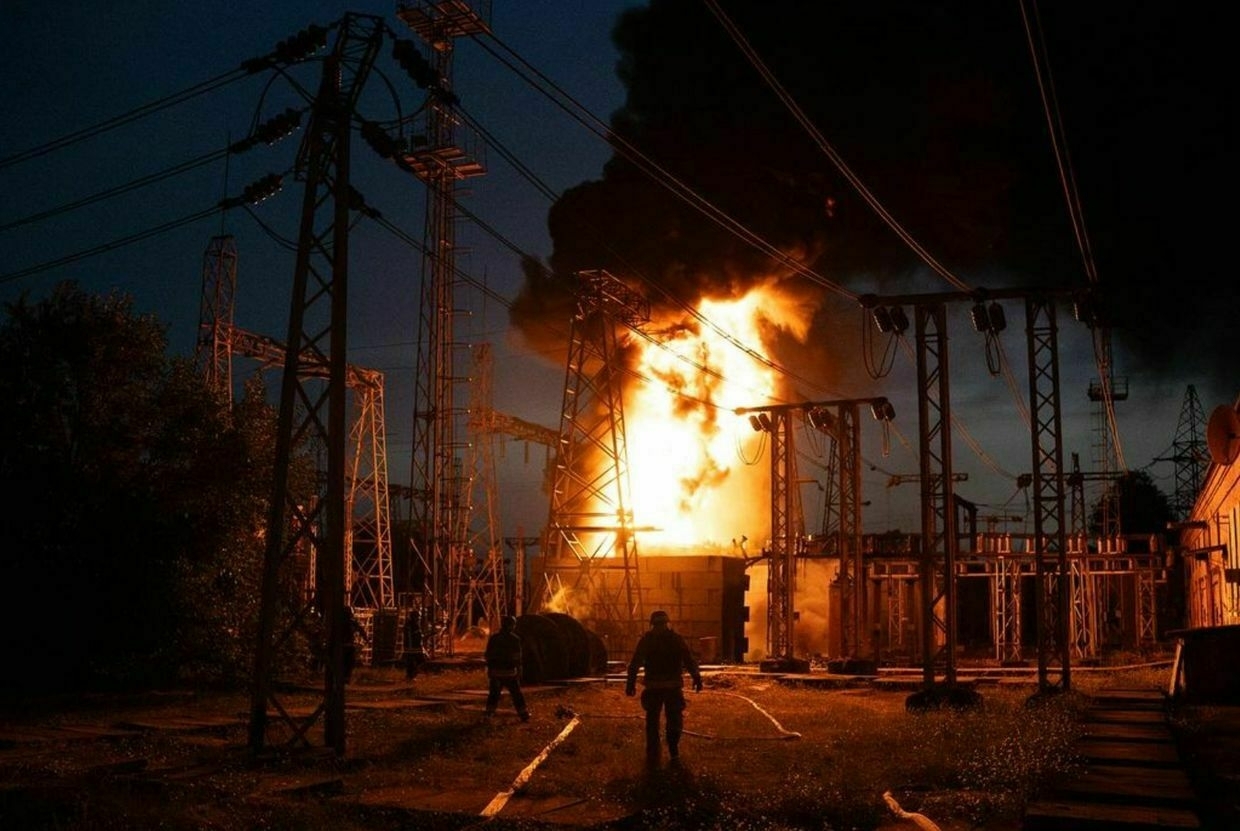
Ukraine boosted electricity exports by 150% in June 2025 compared to the previous month, reaching over 237,000 megawatt-hours (MWh), according to consulting firm ExPro Electricity.
Current export volumes have returned to autumn 2022 levels, before Russia launched systematic attacks against Ukraine’s energy infrastructure that caused massive blackouts across the country.
This marks Ukraine’s return to exporting more electricity than it imports for the first time since October 2023, ExPro analysis reports.
Electricity cannot be stored in large volumes for long periods, so it can be exported during certain hours when there is surplus in Ukraine’s energy system, and imported during deficit hours.
Hungary imported the majority of Ukrainian exports, with shipments jumping from 34,000 to 122,000 MWh in a single month.
The recovery represents a dramatic turnaround from June 2024, when Ukraine had no exports at all and imported 858,000 MWh, four times more than in June 2025.
Russia continues to target Ukraine’s energy infrastructure, with the latest strike hitting a critical energy facility in Kherson Oblast on June 27 that caused widespread blackouts across multiple communities.
Governor Oleksandr Prokudin warned residents to prepare for prolonged outages as power engineers work to restore electricity, saying “Russia decided to plunge Kherson Oblast into darkness."
In February 2025, Emergency energy power shutdowns were introduced in eight Ukrainian oblasts due to Russian attacks on the country’s energy system.
‘With surgical precision’ — Ukrainian drones strike Russian plant 1,300 km away, SBU source saysThe SBU said its long-range drones targeted the Kupol plant in Russia’s Udmurt Republic on the morning of July 1, resulting in at least two confirmed strikes and a fire at the site.The Kyiv IndependentAnna Fratsyvir
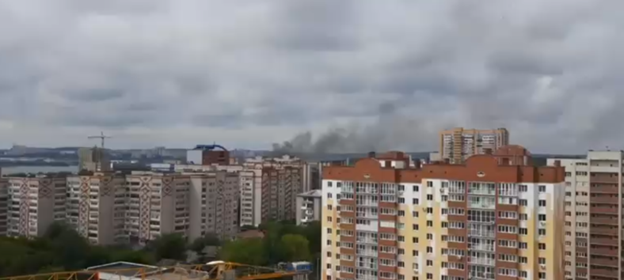
-
Want to invest in Ukrainian startups from the US? This platform promises to be the bridge

Hans Braunfisch wants Americans to invest in Ukrainian startups, but there’s a problem: there’s no clear path for individual investors to put money into the more than 26,000 Ukrainian startups out there.
The former PwC consultant plans to change that with Pravo Venture, a platform streamlining foreign investment for Ukrainian startups. Think of it like a meeting point for Ukrainian companies and U.S. investors accredited by the Securities and Exchange Commission who want to support the country with capital instead of aid.
While co-heading PwC’s Ukraine Taskforce, Braunfisch attempted to persuade clients to invest in Ukraine’s entrepreneurs to help its economic recovery. But he couldn’t convince the big institutional investors to go for it.
Searching for options for individual investors, Braunfisch also couldn’t find any Ukrainian companies listed on U.S. stock exchanges. This sparked his idea for an online investment platform to help local entrepreneurs and communities, with Ukraine as an equal Western partner.
“We want to shift the narrative that Ukraine is a short-term charity case to Ukraine is an opportunity for a much longer-term business and collaborative partnership,” Braunfisch told the Kyiv Independent.
He researched and spoke to Ukrainians over 18 months about ways investors could help, eventually founding Pravo alongside Ukrainian-American Alex Inshin and Hamburg-based Vlad Sutea.
In June, the small team launched Pravo — which means “rights” in Ukrainian — on a tight budget of under $200,000. Currently, the platform lists two startups: Mosqitter, which makes non-toxic mosquito repellents, and Promin Aerospace, a rocket producer.

Showcase of Mosqitter - a non-toxic mosquito repellent. (Mosqitter) Ukraine’s startup ecosystem has tripled in five years, even during Russia’s full-scale invasion, to become the second most valuable in Central and Eastern Europe at $28 billion. IT startups make up 4.4% of the country’s gross domestic product, with Ukrainian-origin unicorns like artificial intelligence writing tool Grammarly and software development platform Gitlab used globally.
Despite a partial rebound from a steep 30% economic decline in 2022, foreign investment in Ukraine remains sluggish. Ongoing war risks and images of destroyed cities have deterred foreign investors, while levels of domestic capital is either limited or redirected to military and defense needs.
“We get the tragic images of aerial attacks, but we typically don’t see the innovators building something in Dnipro or Kyiv or Lviv — those people are still there, but they’re not getting the recognition they deserve,” Braunfisch said.
Ukrainian innovation, American capitalPravo is currently only open to U.S. investors who are SEC-accredited, meaning they make at least $200,000 annually or have a net worth of $1 million. Pravo’s target is Ukraine-friendly American investors looking to invest smaller sums, like $5,000 or $15,000, with a starting goal of 1,000 people on the platform in the first 12-18 months.
“Pravo allows more individual investors to follow through on their interest in Ukraine, while directly investing in community-level entrepreneurs,” said Mark Simakovsky, former USAID deputy assistant administrator for Europe and Eurasia and founding partner of Heartland Global Advisors, a strategic advisory firm based in Washington, DC.
On the Ukrainian side, Braunfisch partnered with Eo Business Incubators, a Ukraine-based mentorship program for startups led by an international team. For now, Pravo will only hire graduates of the incubator, many of whom go on to the prestigious Techstars accelerator program, due to Eo Incubator’s Western approach and standards.
“Startups are starved for cash, especially Ukrainian startups, and they need that cash to reinvest in their business, build their products, and pay their employees in Ukraine.”
With Ukraine producing 150 investable startups annually, Braunfisch hopes to add two to three companies monthly. Quality is more important than quantity, he says.
For Mosqitter founders Anastasiia Romanova and Olga Diachuk, the incubator's mentors helped them understand and meet Western investor expectations. They hope Pravo will help spotlight Mosqitter and increase access to U.S. investors and new partnerships.
"There is the opportunity to tell a broader audience of U.S. investors about Mosqitter, about our product, and potentially raise funds," Romanova told the Kyiv Independent.
"There's nothing similar on the market," Diachuk added.
Companies need to tick a checklist before joining Pravo. Research and development needs to be in Ukraine, while the company should be legally domiciled in the U.S. so fundraising can be in dollars into a U.S. bank account, which helps mitigate risks, said Braunfisch.
Investing in wartime Ukraine requires ‘nuanced understanding of risk’ but worth it, says global trade expertWhen John Denton first visited Ukraine weeks into Russia’s full-scale invasion in 2022, he knew that for the country to survive, businesses needed to stay alive. Denton is the secretary general of the International Chamber of Commerce, the world’s largest business organization. Active in 170 countries, the organizationThe Kyiv IndependentDominic Culverwell
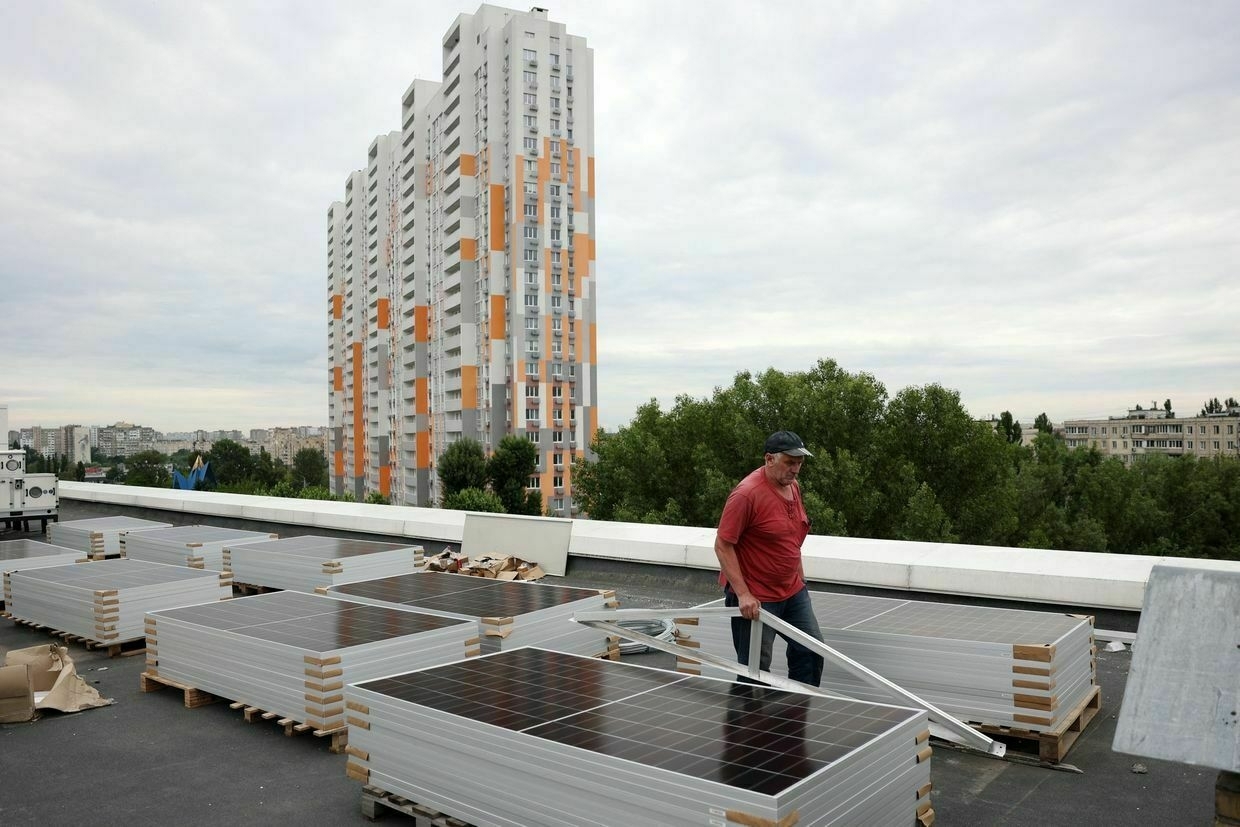
Challenging environmentConvincing investors to put money into Ukraine during the war is no easy feat. Braunfisch says trust is key to winning people over. Working with reputable partners like Eo Incubator and Dealmaker, which handles the whole investment process, helps build that trust, he said.
The team is also ensuring that startups get most of the cash. Instead of charging them a cash fee, Pravo takes a 1% passive equity stake, which also incentives Pravo to make sure startups do well. But even if a startup fails, Pravo would still have accomplished its goal of getting money to Ukrainians, Braunfisch said.
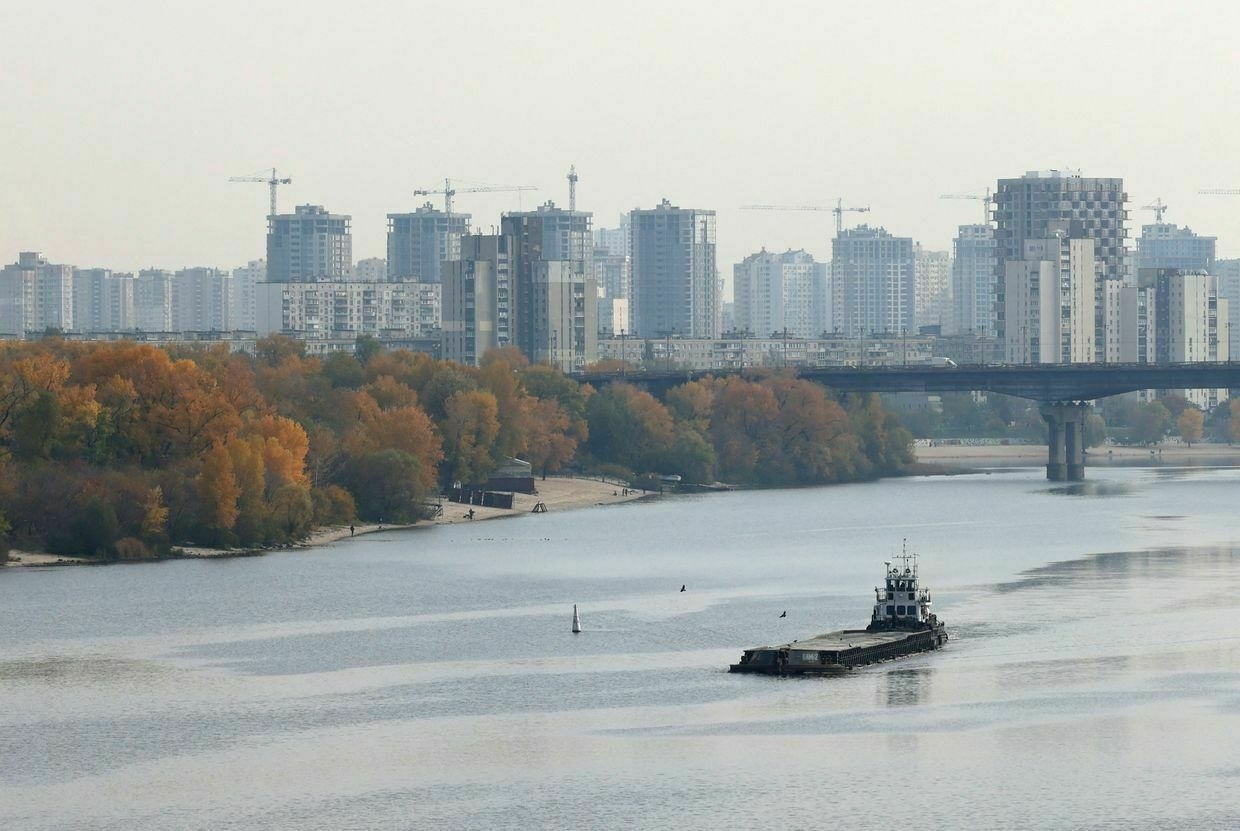
A cargo ship sails on the Dnipro River on a warm sunny day in Kyiv, Ukraine, on Oct. 28, 2024, amid the Russian invasion. (Anatolii Stepanov / AFP via Getty Images) Unlike some crowdfunding websites, which can charge as much as 11% of every dollar invested, Dealmaker, which handles all financial transfers, charges a one-time 1% transaction fee. Pravo doesn’t take a cut.
"We understand that startups are starved for cash, especially Ukrainian startups, and they need that cash to reinvest in their business, build their products, and pay their employees in Ukraine," Braunfisch said.
Pravo is also working in a challenging environment wherein risk appetite for early-stage investments has dropped in recent years. This is a problem as Ukraine's startup culture is at a much earlier stage compared to the U.S. or Western Europe and requires risk-taking to develop "blockbuster" hits like Grammarly.
While this means it will be harder for Pravo to convince venture capital firms or smaller family offices to invest, it opens opportunities for individual investors, said Braunfisch. With fewer investors going after early-stage startups, those willing to take the risk and help Ukraine will see better returns.
"Ultimately, we have an advantage because there is no other way for my friends in Arkansas who want to support Ukraine to do so, aside from giving to charities and paying taxes," he added.
Note from the author:
Hi, it’s Dominic, thank you for reading this story. One of the things I love about my job is getting to meet and visit Ukrainian startups. There is so much creativity and ambition here that it makes me optimistic for Ukraine's future. Despite the war, Ukraine's entrepreneurs refuse to stop. To help us keep bringing you stories like this, please consider joining our community for as little as a cup of coffee a month.
‘A blueprint’ — foreign investors, Ukrainian hotel create jobs for war displacedIn a luxurious resort complex north of Kyiv, 12 women are retraining to enter the hospitality sector in a new school that will kickstart a fresh life for Ukraine’s internally displaced people (IDPs). The women, mostly from Ukraine’s occupied territories, are learning to be housekeepers in the first programThe Kyiv IndependentDominic Culverwell
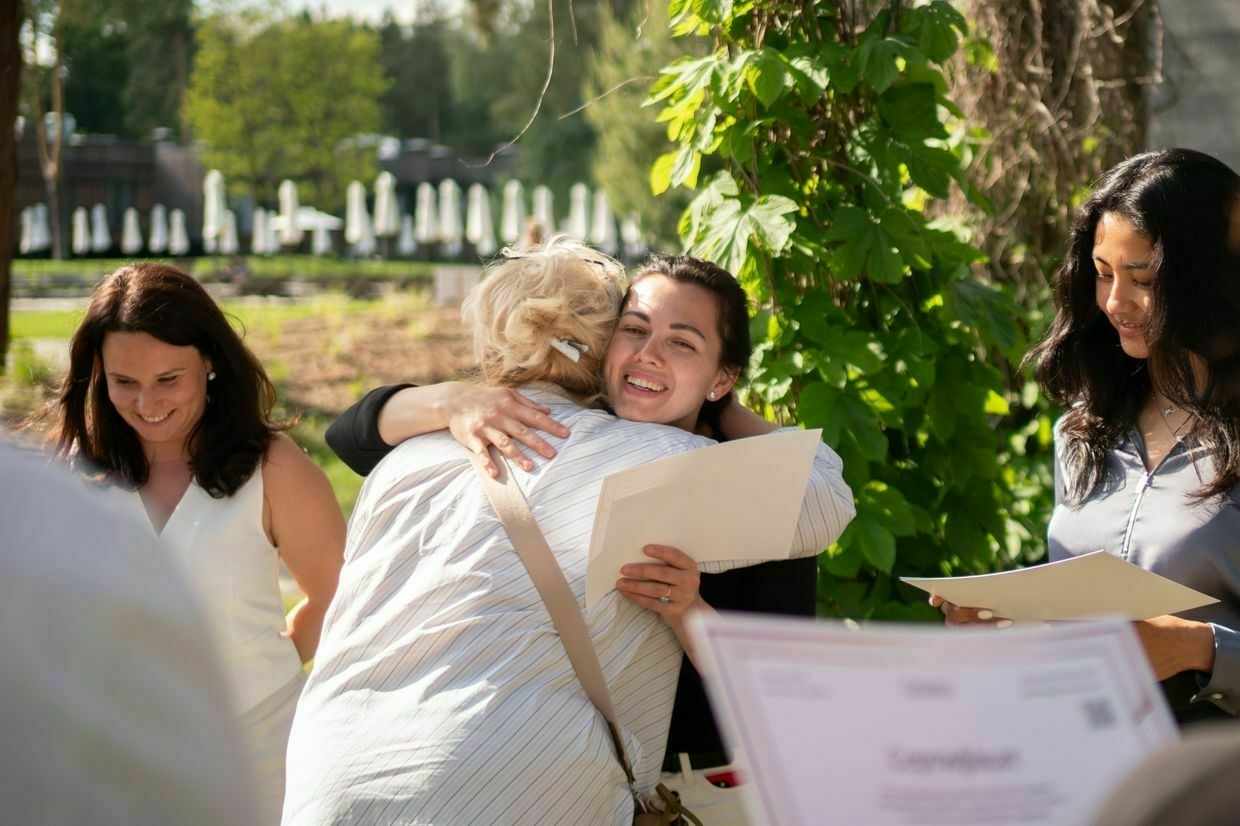 Subscribe to the NewsletterUkraine Business Roundup
Subscribe to the NewsletterUkraine Business Roundup<span data-sanitized-id="ukraine-business-roundup-info" data-sanitized-class="ukraineBusinessRoundup__info"></span> <button data-sanitized-id="ukraine-business-roundup-subscribe-btn" data-sanitized-class="ukraineBusinessRoundup__form_button"> <span data-sanitized-class="ukraineBusinessRoundup__form_label">Subscribe</span> </button> </div>Playing the long game: why does Putin need a simulation of peace talks with Ukraine? #shorts
Russia hits evacuation vehicle in Donetsk Oblast, killing civilian
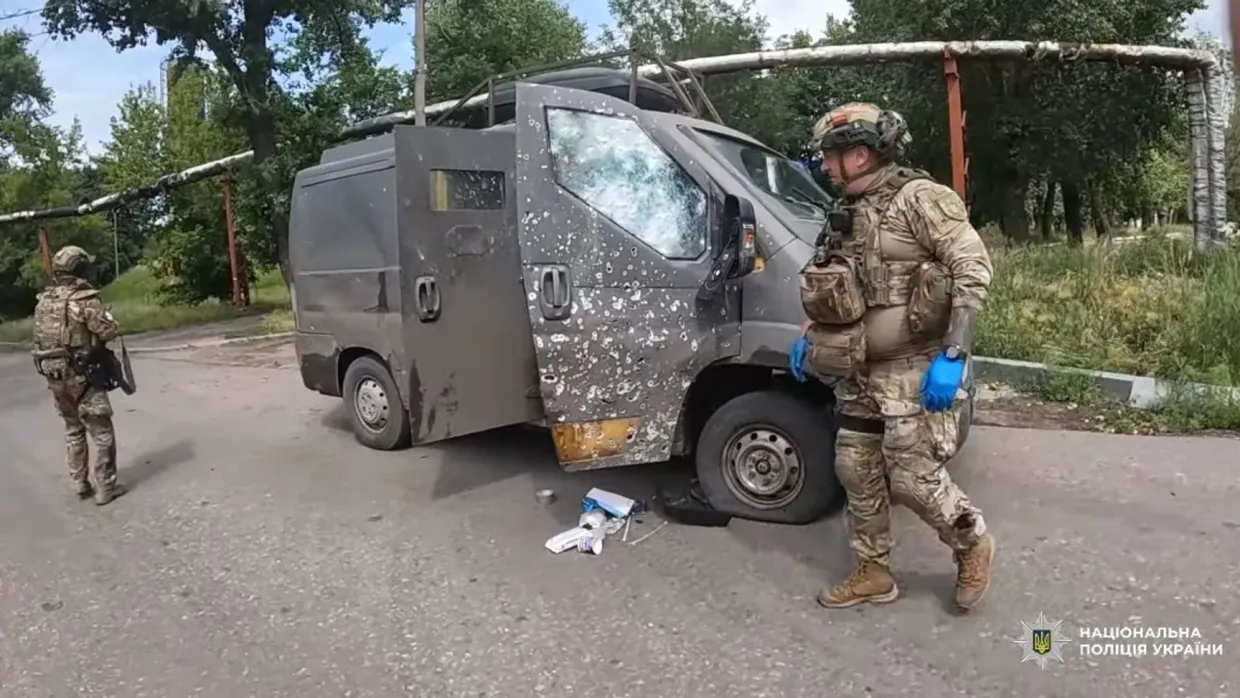
The Russian army attacked an evacuation vehicle carrying three wounded civilians, which resulted in the death of one of them, Ukraine’s National Police reported on July 1.
Russia has for months focused its offensive efforts on the embattled town of Pokrovsk in Donetsk Oblast and has recently been escalating attempts to break through to neighboring Dnipropetrovsk Oblast, a region that has not yet seen combat.
According to the police, Russian forces attacked the evacuation vehicles provided by chaplains three times: at the entrance to the city, in the city center, and during the evacuation of civilians from Pokrovsk. The police called Russia’s actions “targeted hunting."
The police picked up one injured person in the city, and the other two — on the way to the hospital. In the meantime, the Russian army hit the car with a Molniya drone. As a result of the attack, one of the police officers was injured.
As the evacuation vehicle came under fire, one of the injured could not be brought to the hospital in time and died of blood loss.
“We called for reinforcements and sent the injured civilian with them, hoping for a miracle. But it did not happen, Russia took another life,” Hennadii Yudin, head of the “White Angel” police unit, said.
Another injured man, who was evacuated with a shrapnel wound, is undergoing treatment, the police said.
Commander-in-Chief Oleksandr Syrskyi reported on June 27 that Russia has amassed “about 111,000 personnel” in the Pokrovsk sector, but Ukrainian forces are holding the line.
Syrskyi’s statement came as Russian President Vladimir Putin claimed Moscow is “ready” for a third round of peace talks with Kyiv.
Russia’s so-called “peace memorandum” demands that Ukraine recognize Russia’s annexation of Crimea, as well as Kherson, Donetsk, Zaporizhzhia, and Luhansk oblasts — none of which are fully under Moscow’s control.
As Russia inches closer to Dnipropetrovsk Oblast, new Ukrainian region might soon be at warMoscow said its troops had crossed into Dnipropetrovsk Oblast and were conducting offensive operations in the region, a claim Kyiv quickly denied as “Russian disinformation.” Russian troops have been pushing toward Dnipropetrovsk Oblast for months, trying to solidify the southern flank to capture Pokrovsk and the remaining parts of theThe Kyiv IndependentAsami Terajima
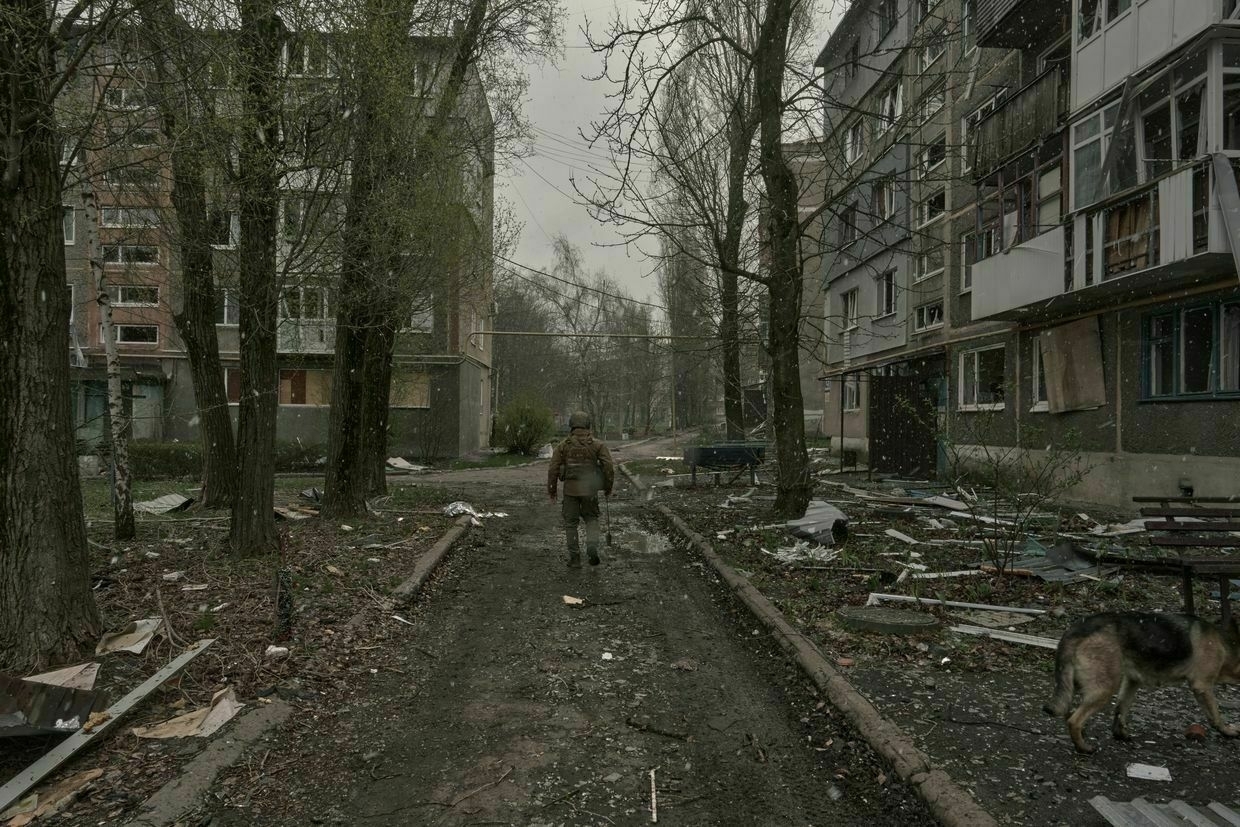
Ukraine’s new interceptor UAVs are starting to knock Russia’s long-range Shahed drones out of the sky

Russia’s Shahed drone swarms are pummeling Ukraine on a nightly basis, inflicting ever more death and destruction in cities that had managed to carve out some sense of normalcy amid wartime.
Civilian alarm has grown. With traditional air defense stockpiles running low, the government is banking on newly created “interceptor-drones” to restore a baseline of public safety.
“Ukraine is already using interceptors to shoot down Shaheds and is expanding their production,” President Volodymyr Zelensky’s office wrote on June 21.
As with much of Ukraine’s unmanned aerial vehicle development, a fleet of nascent interceptor drones — which shoot other drones out of the sky — is filling a gap in more traditional anti-air defenses, as the U.S. cuts its weapons aid and Russia expands its drone fleet.
“If at the start we had some kind of SAMs, missiles, Javelins, air-defense systems — including enough rockets for them — now they’ve started to run out, and we’re running a deficit,” said Bohdan Danyliv, who heads the military department of the Serhiy Prytula Fund, a Ukrainian charity that also helps to finance military developments, including the new interceptor drones.
The Ukrainian government’s defense tech apparatus publicly established anti-Shahed defense as a top priority as of the beginning of 2025. But only in recent months, with radically expanding attacks, has the government begun hastening to get the new systems working. Officials are now calling these anti-Shahed drones a top concern.
“We need to make it so the Russians cry bitter tears, so they’re afraid to take flight.”
“Assignment number one: The cultivation and scaling of means that already work effectively. Most of all: increasing the number of unmanned aerial vehicle interceptors,” Ukraine’s Air Force wrote in a June 14 Telegram post.
Some models of the new generation of interceptor drones have played a role at the front for at least a year, largely shooting down Russian reconnaissance drones like Merlins or Zalas that loop across much of the front line. But Shahed defense has proved a bigger issue.
“A Shahed is much faster, by a factor of two, and you don’t just need to catch up to it, you need to overtake it,” said Danyliv. “A Zala or an Orlan does recon, and so it circles. A Shahed flies straight, and your radar has a range of 25-30 kilometers, which a Shahed passes through in just a couple of minutes.”
Several of the new projects have appeared across various social media channels in the past month. One, the Sting, is an interceptor drone that has accomplished what seems to be the first filmed destruction of a Russian long-range Shahed-type drone in what the Sternenko Community Fund called “Another Shahed shot down by an FPV from the community, in collaboration with Wild Hornets.”
“We cannot name producers, out of security considerations,“ a representative for the Sternenko Community Fund wrote in a statement to the Kyiv Independent. “However, recently the situation has been changing, and we are already seeing positive movement in this area.”
“Before this, our mobile-fire groups and helicopters fought the Shaheds relatively well,” said a representative for Wild Hornets, the producer and charity fund that makes the Sting, who asked not to be named out of safety concerns.
But after recent months saw a radical uptick in the number of Shaheds flying over Ukraine, as well as their concentration on a single city at a time, “the administration started to understand that the Shahed is a serious strategic advantage for the Russians.”
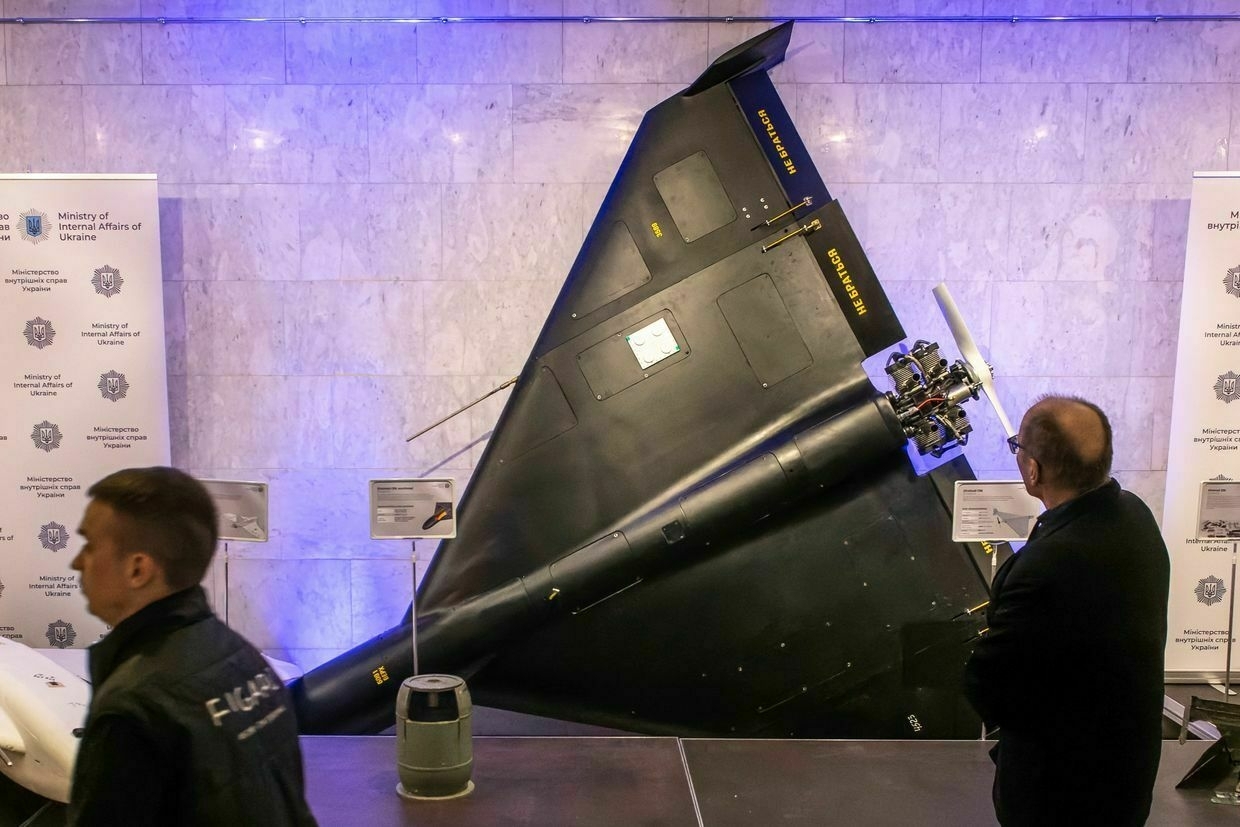
The Iranian-made unmanned aerial vehicle Shahed-136 warhead, used by Russia as the Geran-2, is seen on display at an exhibition in Kyiv, Ukraine, on Feb. 24, 2025. (Maxym Marusenko / NurPhoto via Getty Images) 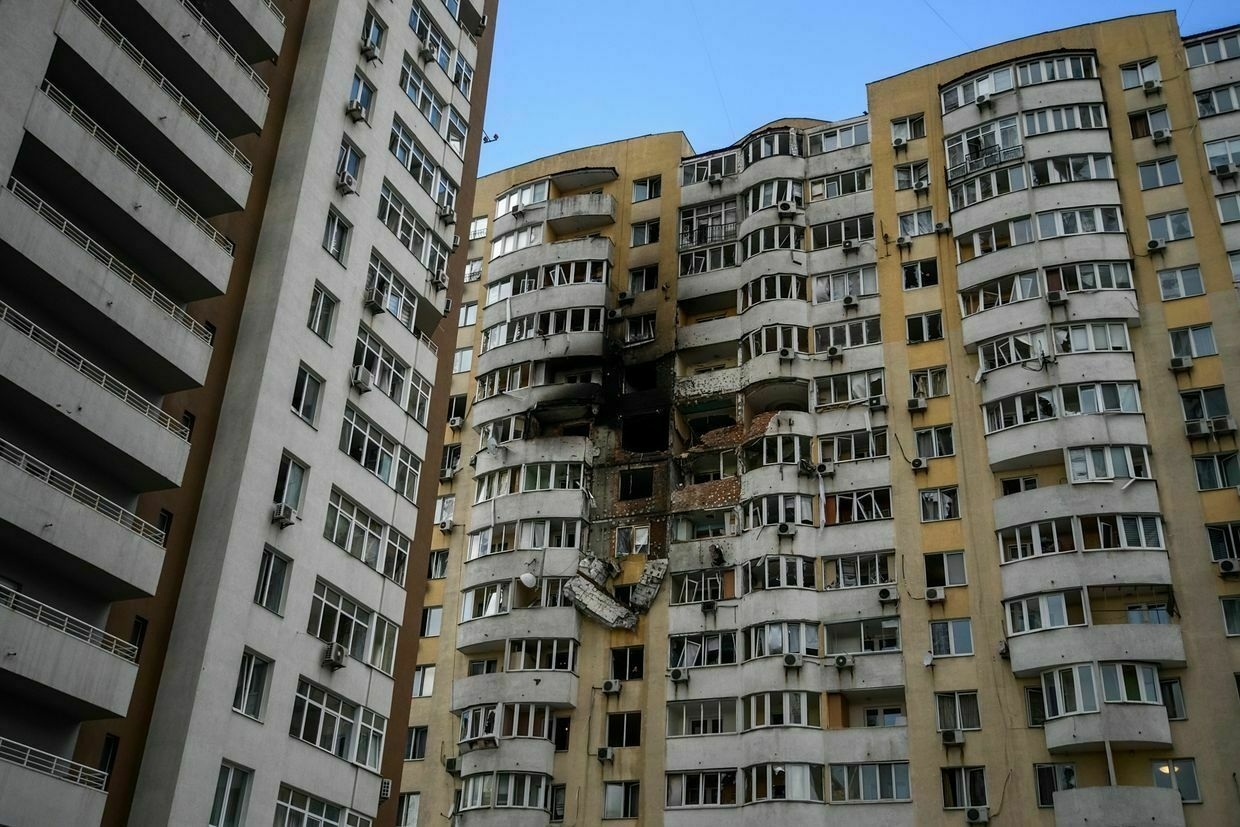
An apartment block in the Solomianskyi district is seen damaged by an overnight Russian attack in Kyiv, Ukraine, on June 6, 2025. (Maxym Marusenko / NurPhoto via Getty Images) Another new anti-Shahed drone made an appearance in a video Zelensky posted early in April, touting co-production with Belgium. The announcement said that as of then, it had downed upwards of 20 Russian drones of that kind. Those drones seem to have been another kamikaze model called the Shulika.
Danyliv says it was already clear last year that Ukraine would need to modify drones to take down Shaheds. He laments that the government only shifted focus to those anti-air developments in the past few months, once Shahed strikes were already escalating rapidly.
Despite government encouragement, Danyliv said the Defense Ministry has yet to sign a proper contract with any of the new anti-Shahed drone producers, though some anti-ISR drones like the Taras P that the Prytula Foundation backs have gotten them.
Russia has, moreover, been quicker to upgrade its Shaheds than Ukraine has been to upgrade its defenses against them, says Taras Chmut, the executive director of Come Back Alive, a charity that supplies soldiers with weapons. “Their number is growing faster than the opposition from Ukraine’s side — plus, these weapons are growing more technologically sophisticated.”
There are, the Defense Ministry told the Kyiv Independent, 10 models of interceptor drone undergoing testing for anti-Shahed performance at the moment. Danyliv estimates that four actually work against Shaheds and Gerans.
Chmut declined to identify the specific model that Come Back Alive funds, but tallied “close to 25 Shaheds and between 30 and 40 Gerbers” that its interceptors had shot down in the three months since they began prioritizing anti-Shahed defense.
The development is major enough to make the Ukrainian development of these drone-hunting drones a central point of drone co-production with, for example, the United Kingdom, alongside Ukraine’s much-touted flotilla of long-range drones.
The core advantage of an interceptor drone like this is precision on a budget. The Prytula Foundation tallied the success of its own funding of its earlier interceptor drones in a June 13 Facebook post that included shooting down one Gerbera drone. The cost of these interceptors, the fund reported, is just under $2,000, as compared to surface-to-air missiles, which cost from $40,000-$100,000.
The average for interceptors that take out Shaheds is closer to $5,000, Danyliv and Chmut both said.
Domestic air defense missile production is, to all appearances, non-existent, even for older generations of residual Soviet surface-to-air missiles like the S-300s. When reached, a representative for the Strategic Industries Ministry declined to comment on that production, citing “a matter of security.”
Ukraine is courting more advanced missile systems from the U.S., which has proved an inconsistent and unreliable provider. But its pre-war supplies of Soviet-era anti-air ammunition are, as Chmut put it, “mostly exhausted or are being searched out around the world in small quantities.”
“You can make a drone, for example, at a firm like us, fast, cheap, and en masse,” said the Wild Hornets representative. “While missiles for an S-300 are unique technologies, that maybe, seems to me, a few companies in the world can make, and more than half of those are in Russia.”
When it comes to shooting down Russian cruise and ballistic missiles, as well as the glide bombs Russia uses closer to the front, “for the time being interceptor drones cannot fully replace traditional air defense systems,” the Sternenko Community Fund representative wrote to the Kyiv Independent.
In addition to the speed and maneuverability of the new Shaheds, a core question is quantity. Russia has ramped up its production to 70 Gerans a day, and is sending ever-larger swarms by night.
Whether these new Ukrainian interceptors can clear the skies of swarms of sometimes 500 Shaheds at a time remains an open question.
The Ukrainians involved in making these drones declined to specify production rates. They anticipated that production expansion would take through the fall.
“It needed to happen yesterday,” said Danyliv. “We need to make it so the Russians cry bitter tears, so they’re afraid to take flight.”
Note from the author:
Hi, this is Kollen, the author of this article. Thanks for reading. With Russian forces massing at the front and air attacks intensifying across the country, Ukraine is holding up in the face of a tense summer. If you want more stories like this, consider joining our community today to help support our work.
How Russia’s Shahed drones are getting more deadly — and what Ukraine is doing about itEditor’s note: Due to the security protocols of the unit featured in this story, the Ukrainian soldiers are identified by first name only. Russia’s air strikes on Ukraine have become far more deadly in recent months. Part of the uptick is due to limited air defense to bringThe Kyiv IndependentKollen Post
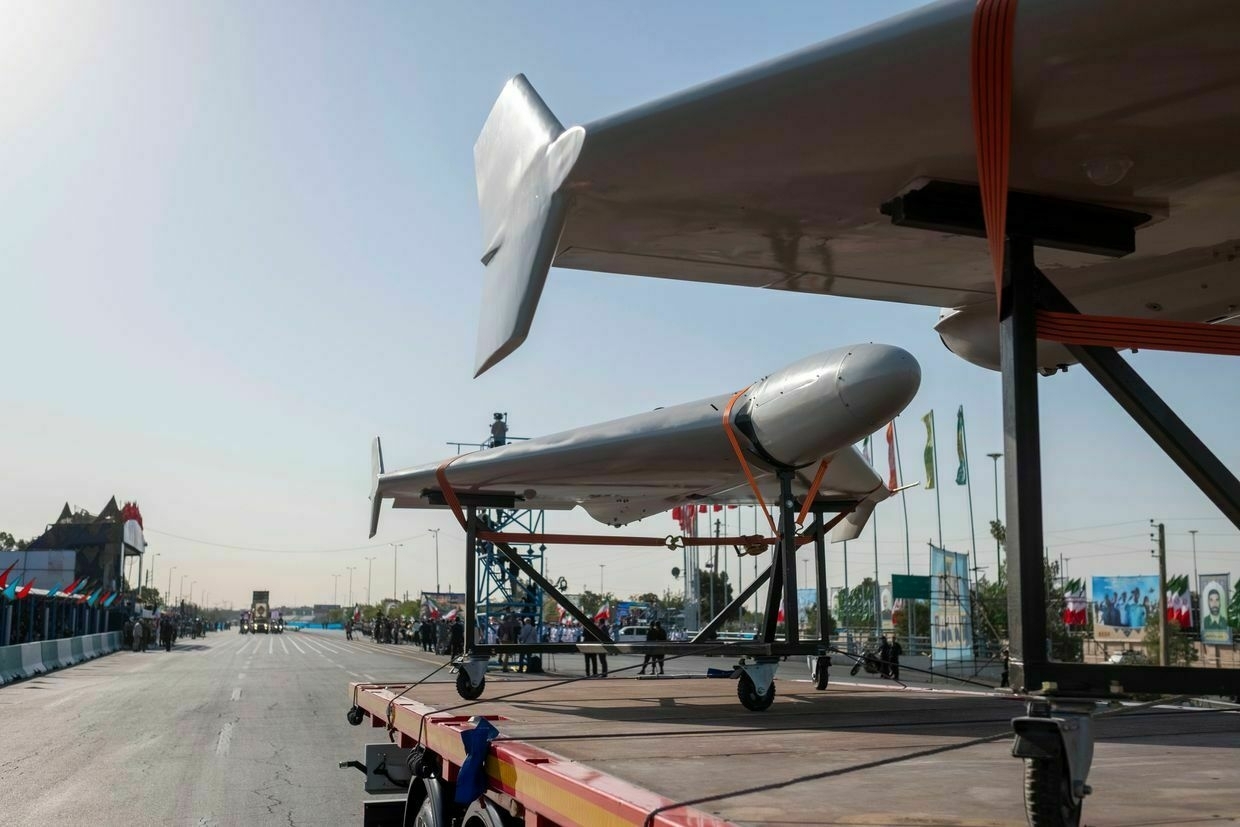
Why Norway is investing billions in Ukraine's victory
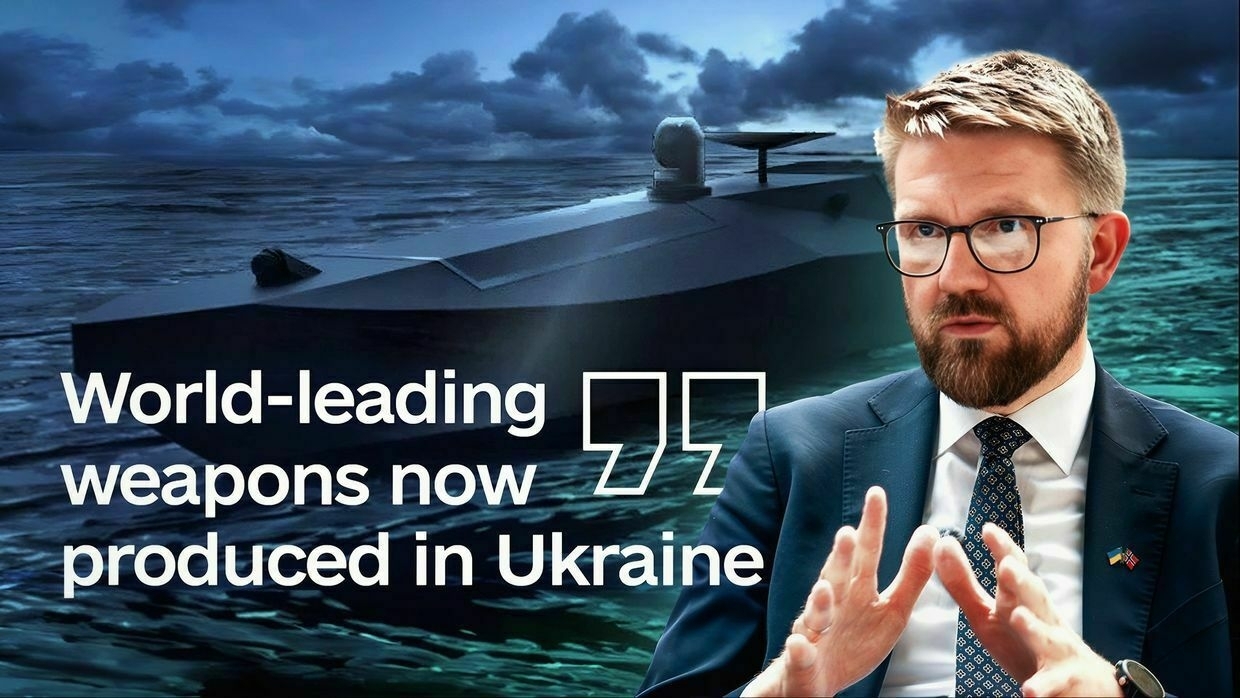
The Kyiv Independent’s Oleksiy Sorokin sat down with Eivind Vad Petersson, state secretary to the Norwegian foreign minister and co-chair of the joint Norwegian-Ukrainian Working Group on Nuclear Safety and Security. They discussed the threats Russia’s war poses to Ukraine’s nuclear power plants, Russia’s hybrid attacks across Europe, Norway’s investment in Ukrainian defense production, and how to keep Western military aid — including NASAMS air defense systems — flowing to help Ukraine protect its civilian infrastructure from Russia’s escalating attacks.
They also discussed whether the Arctic could become a battleground between Russia and NATO, as well as Russia’s claims of increasing investments in the settlements of Barentsburg and Pyramiden on Svalbard.
"Peace" from the Kremlin? Russia's empty promises and Trump's attempts to meet with Putin
Operation Spiderweb and Russia’s record drone assault – Ukraine in photos, June 2025
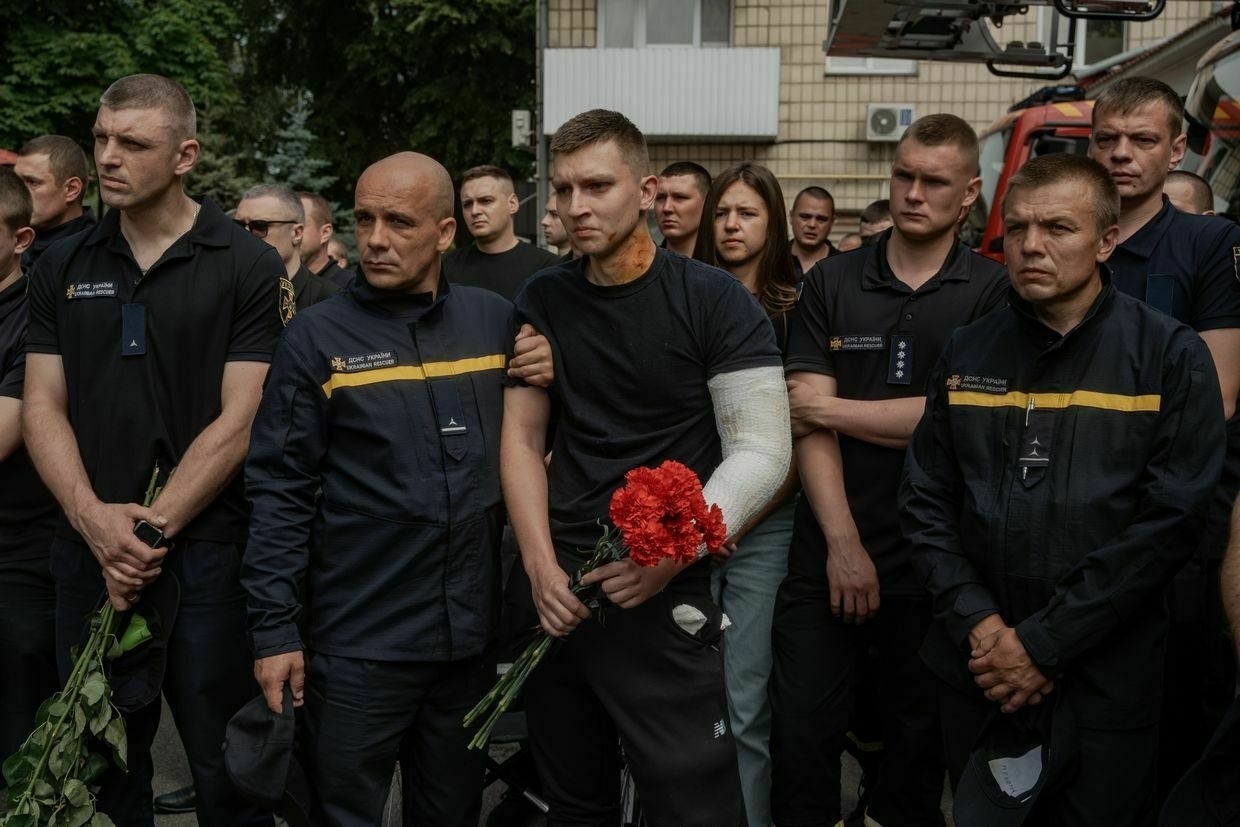
For Ukraine, June began with a celebration — not the one the whole country longs for, victory over Moscow — but a celebration of one of the most stunning drone attacks on Russia, known as Operation Spiderweb.
On June 1, Ukrainian drones targeted four Russian air bases – two of them thousands of miles inside the country – hitting the heavy bombers stationed there. According to estimates from Ukraine’s Security Service (SBU), the drone strike disabled 34% of Russia’s cruise missile bombers, causing approximately $7 billion in damage.
Many in Ukraine saw the operation as one of the most morale-boosting events since the start of Russia’s full-scale invasion in 2022.
Throughout June, Ukrainian forces kept striking targets inside Russia, while June 12 marked a grim milestone for Moscow — one million Russian soldiers killed or wounded in the 39 months of the full-scale war, according to Kyiv.
On the battlefield, Russian advances in Sumy Oblast accelerated significantly in June, with Russian troops capturing several villages and approaching within 20 kilometers of the regional capital of Sumy, according to territorial changes tracked by the open-source mapping project DeepState.
However, by the end of the month, Ukrainian forces had stabilized the situation in Sumy Oblast and pushed the Russian army farther from the regional capital, according to Ukraine’s General Staff.
This month, Russia intensified its assault on Ukrainian cities, with deadly missile and drone strikes hitting Kyiv, Odesa, Dnipro, and others. Moscow’s forces launched a record 5,337 Shahed-type drones against Ukraine in June, according to data from the Ukrainian Air Force and Dragon Capital, smashing the previous record of 4,198 set in March.
On June 29, Russia launched its largest aerial attack on Ukraine since the start of its full-scale invasion, targeting cities far from the front line with 477 drones and 60 missiles.
While Ukraine’s attempt to secure a 30-day ceasefire with Russia once again failed during peace talks in Istanbul at the beginning of the month, the negotiations led to an exchange of the bodies of fallen soldiers and the return of a number of Ukrainian prisoners of war — a long-awaited and deeply emotional moment for families who had spent years waiting for their loved ones to come home. The exchange of POWs was carried out in several rounds and largely focused on severely ill and wounded soldiers. The Ukrainian authorities didn’t reveal the total number of POWs released, citing security measures.
As the war rages on, so does Ukraine’s resistance – a reality vividly documented by photographers throughout the month of June.
The Kyiv Independent partners with the Ukrainian Association of Professional Photographers to look back at some of June’s most memorable moments through the eyes of Ukrainian photographers.
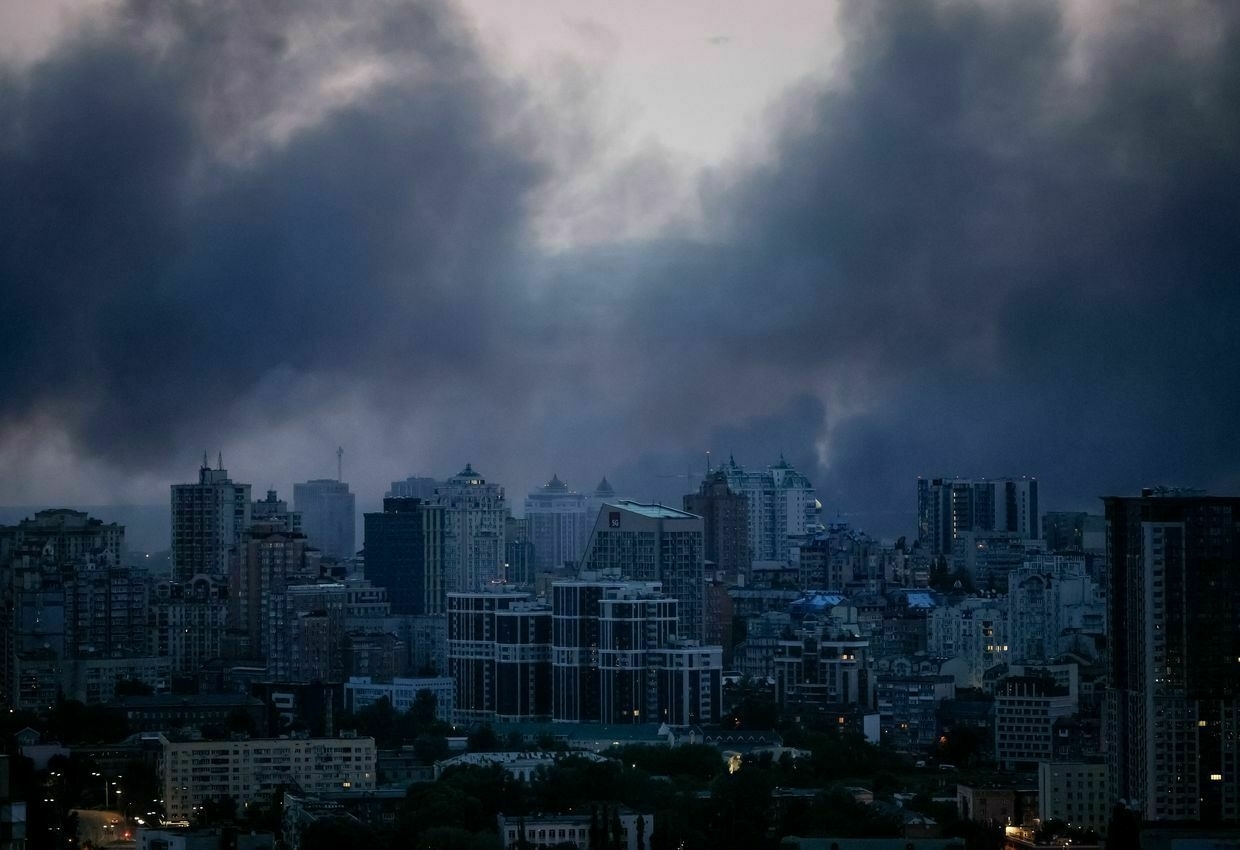
Smoke rises over Kyiv after a Russian missile strike on June 10, 2025. (Serhii Nuzhnenko / Radio Svoboda) 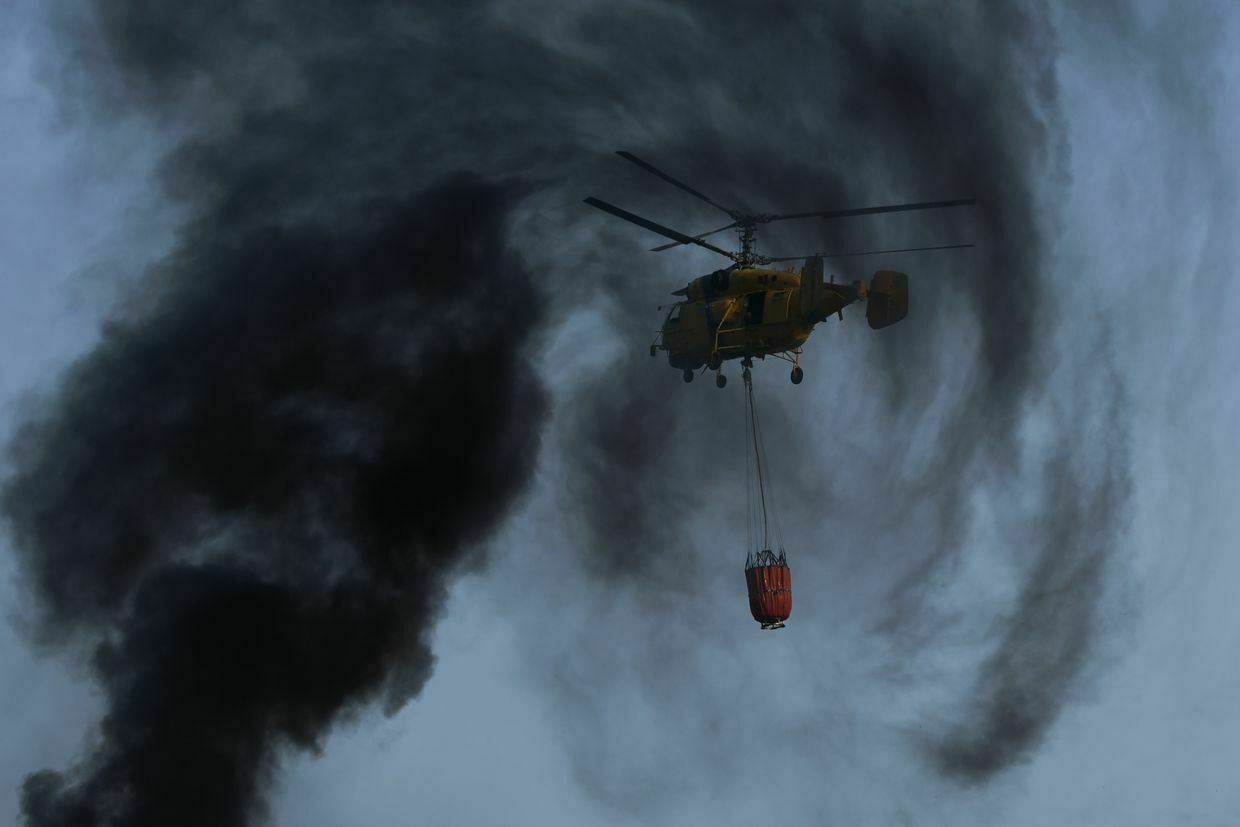
A Ka-32 helicopter extinguishes a fire after a Russian combined attack in Kyiv, Ukraine, on June 25, 2025. (Yevhenii Zavhorodnii) 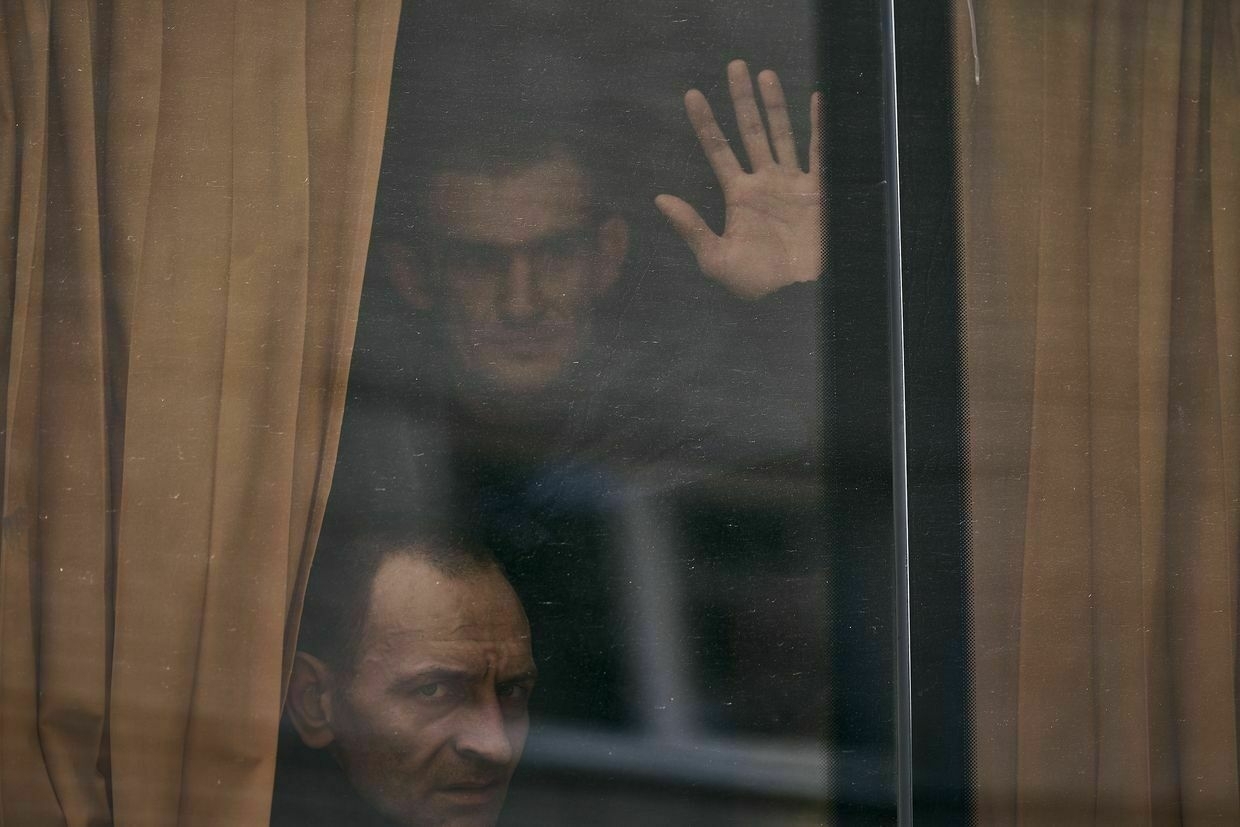
Ukrainian soldiers return from Russian captivity in Chernihiv, Ukraine, on June 12, 2025. (Kostiantyn Liberov / Libkos / Getty Images) 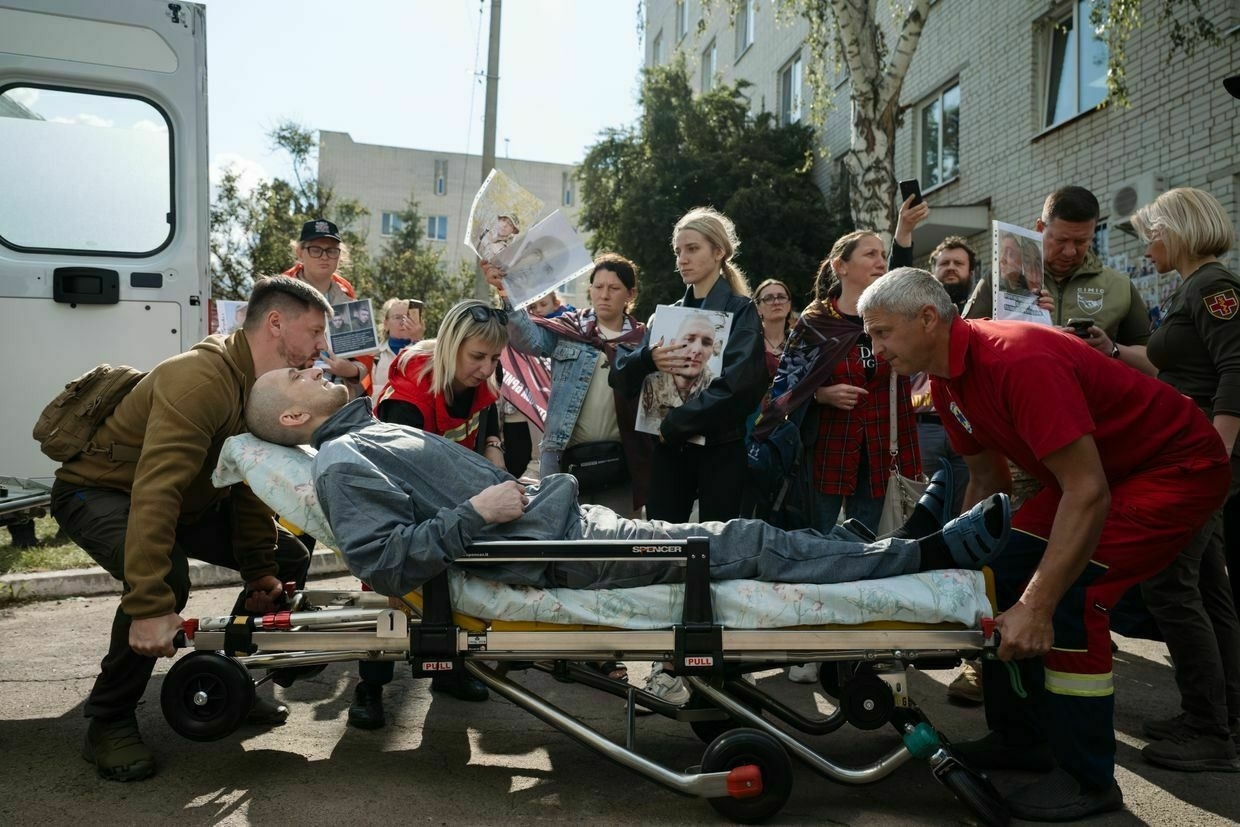
Medics load a seriously wounded soldier, recently released from Russian captivity, into an ambulance as relatives of prisoners of war hold portraits of their loved ones during a POW exchange in northern Ukraine , on June 12, 2025. (Viacheslav Ratynskyi) 
A wounded Ukrainian rescuer holds red carnations during a farewell ceremony for three emergency workers killed by a Russian missile strike in Kyiv, Ukraine, on June 9, 2025. (Danylo Pavlov) 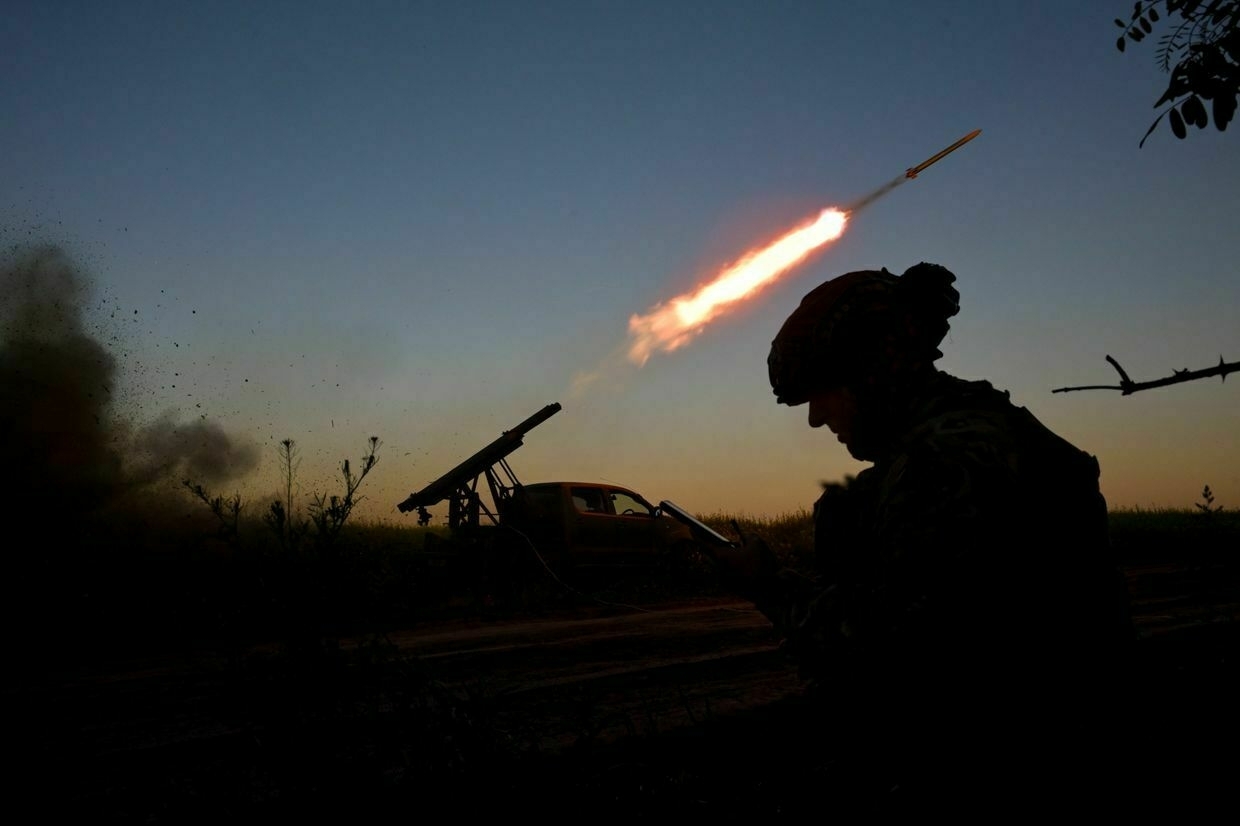
An artilleryman from the special unit Streletskyi Battalion of the Zaporizhzhia police fires a shot from a Partizan rocket launcher near Orikhiv, Zaporizhzhia Oblast, Ukraine, on May 23, 2025. (Dmytro Smolienko / Ukrinform) 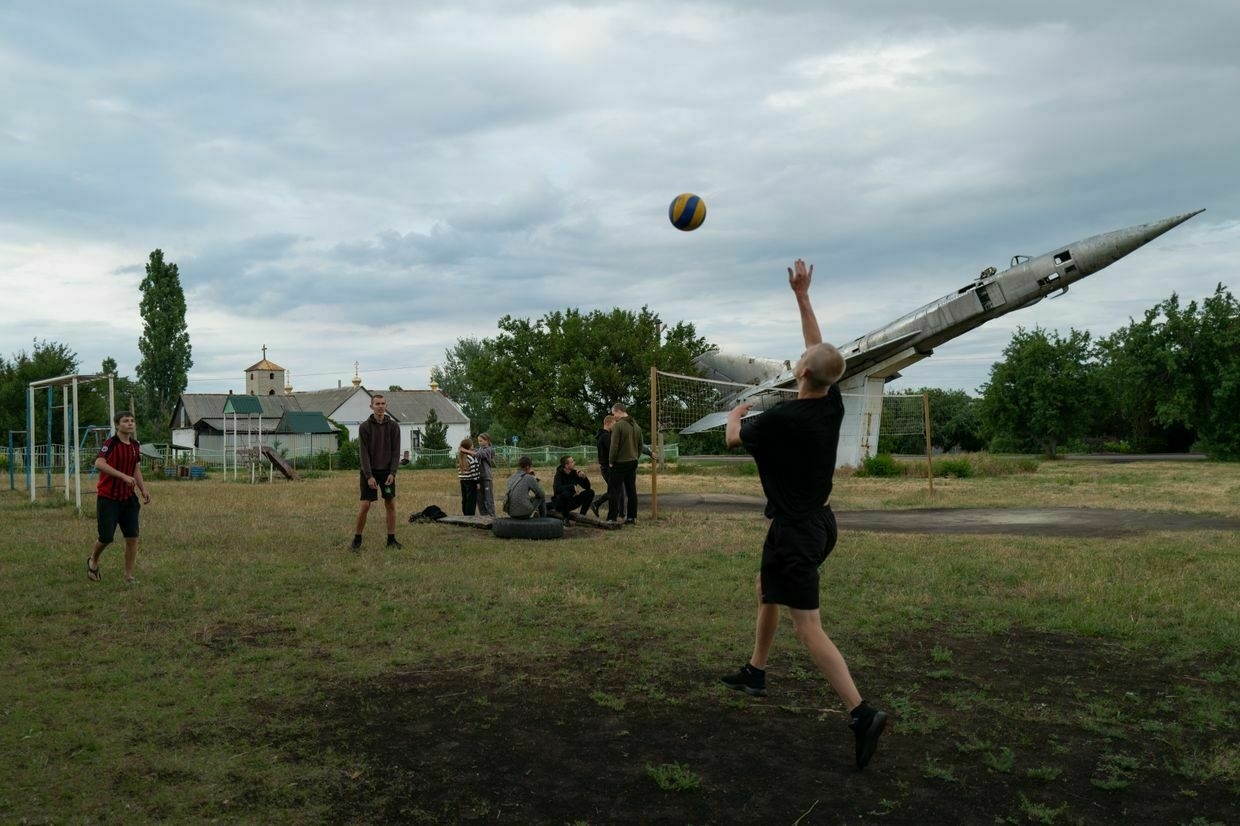
Teenagers play volleyball next to a war memorial in Shostakivka, Donetsk Oblast, Ukraine, on June 16, 2025. (Kseniia Tomchyk) 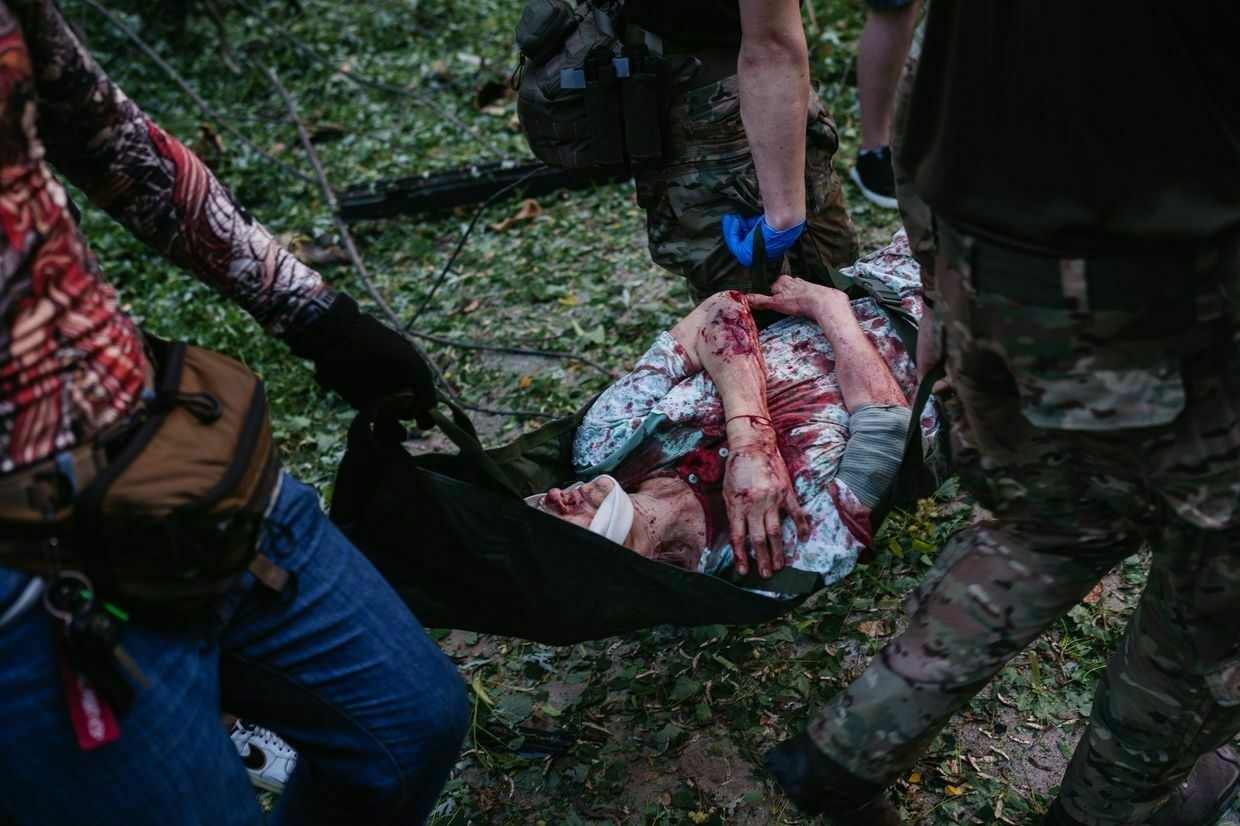
Medics carry a wounded woman on a stretcher after a Russian drone and missile strike in Kyiv, Ukraine, on June 17, 2025. (Serhii Korovainyi) 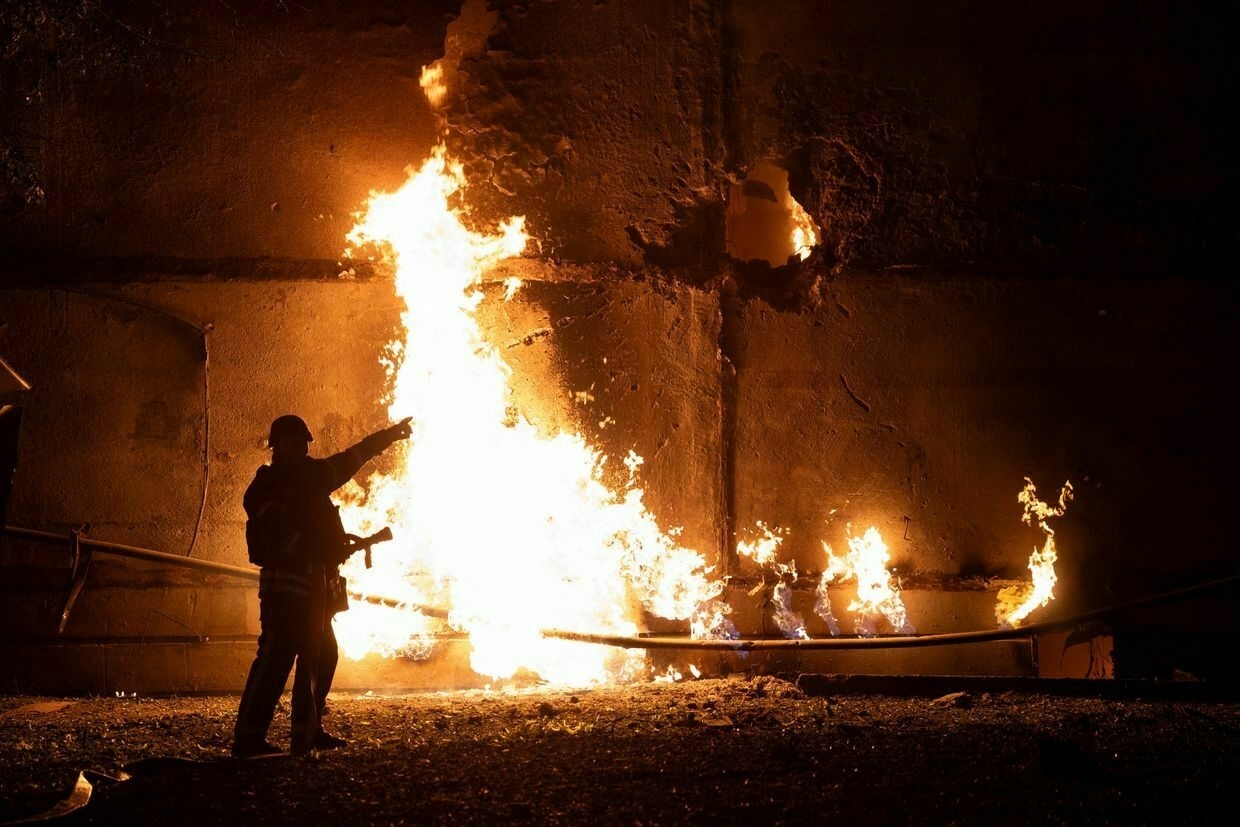
A firefighter stands by a fire and points to a hole after a drone strike in Kharkiv, Ukraine, on June 5, 2025, amid the Russian invasion. (Oleksandr Magula / AFP via Getty Images) 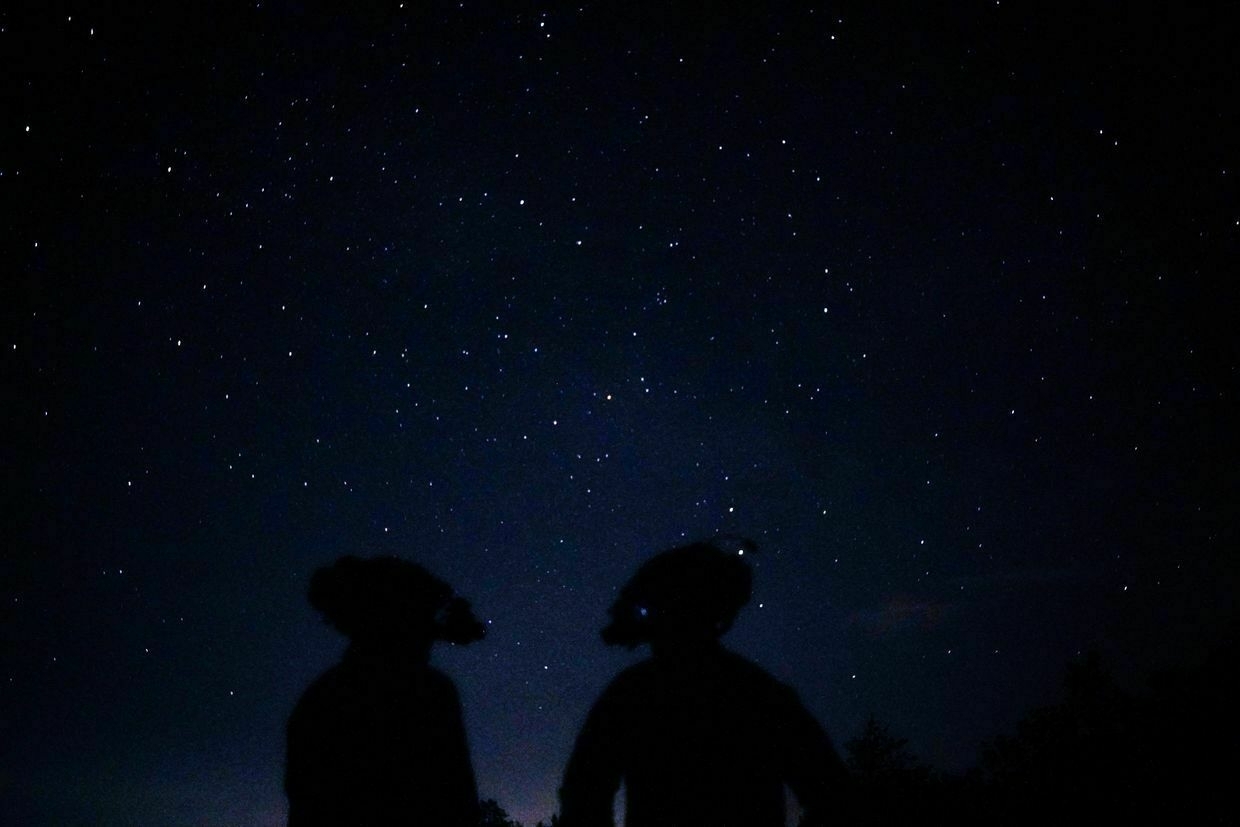
Special Forces fighters of the Ukrainian Defense Forces conduct a night training mission in Ukraine in June 2025. (Karina Piliuhina) Smashing previous monthly record, Russia launches 5,337 kamikaze drones against Ukraine during JuneRussia launched a record 5,337 Shahed-type drones against Ukraine in June, according to data from the Ukrainian Air Force and Dragon Capital, smashing the previous record of 4,198 set in March. Russia’s bombardments, a fact of life after three years of full-scale war, have intensified dramatically in MayThe Kyiv IndependentYuliia Taradiuk
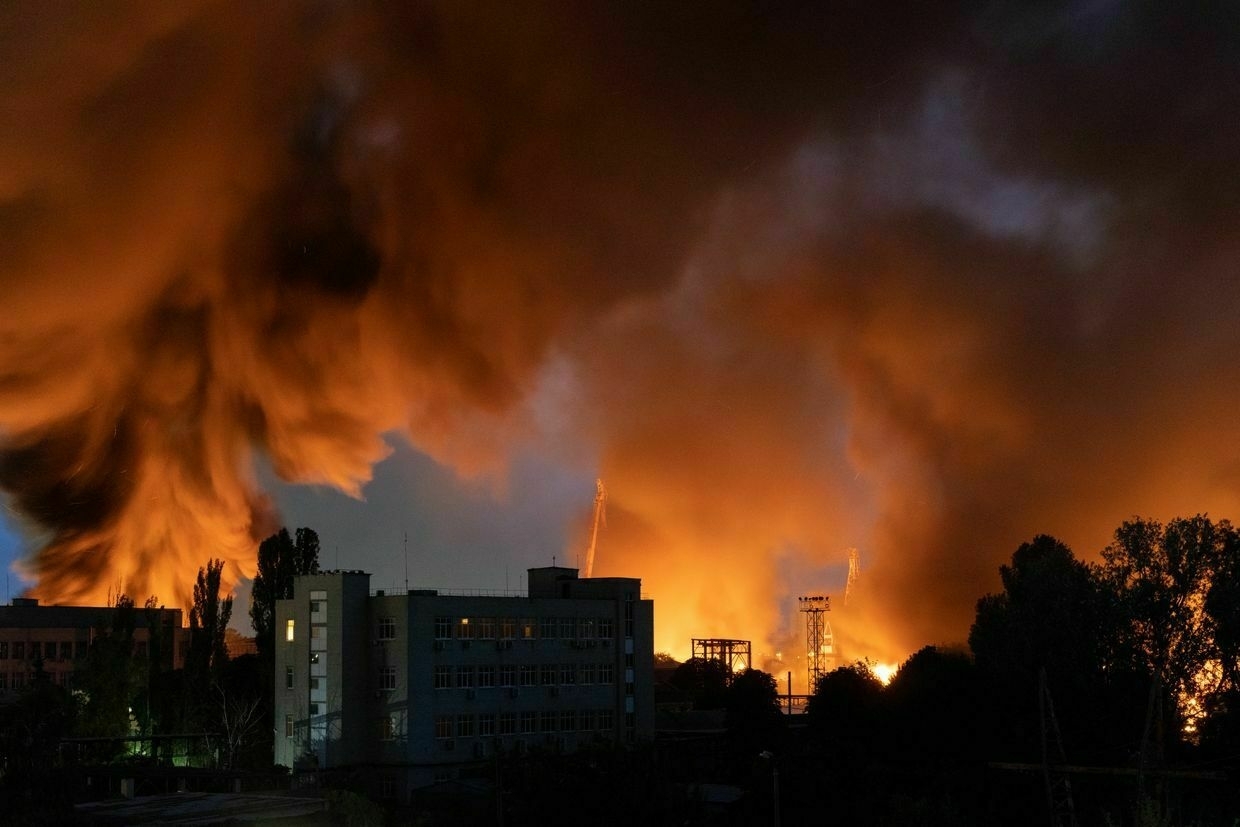
Russian Su-34 aircraft crashes during training flight in Russia's Nizhny Novgorod Oblast
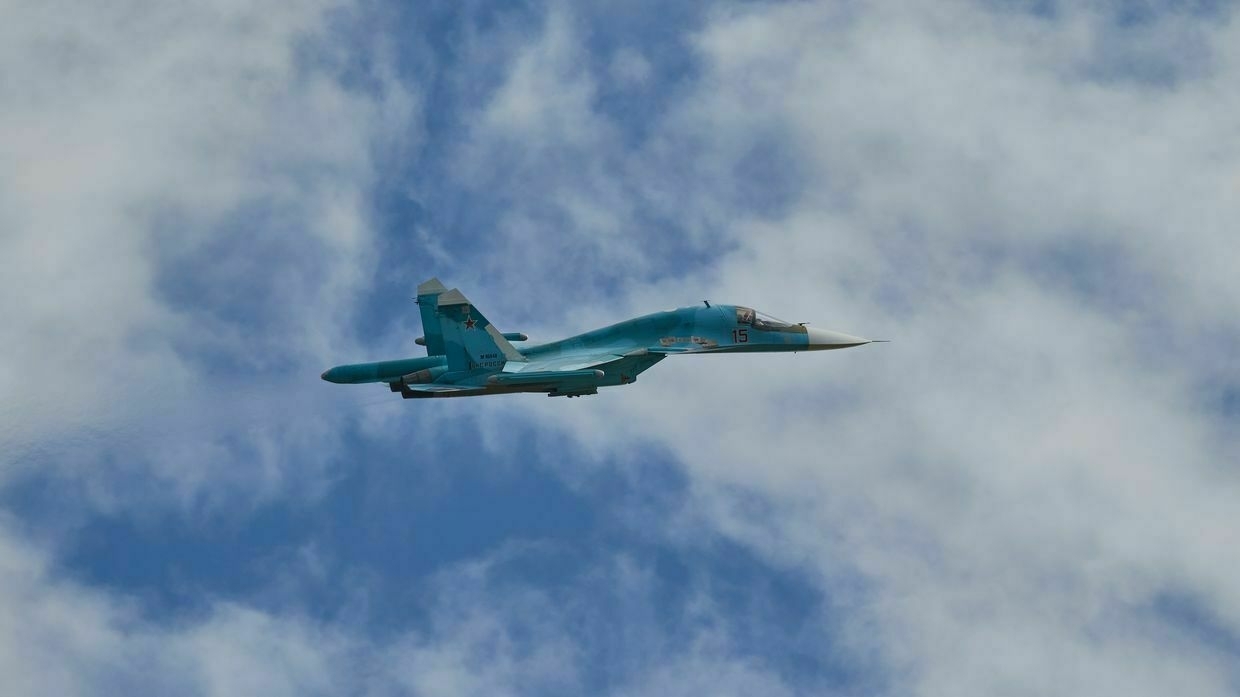
A Russian Air Force Su-34 fighter jet crashed during a training exercise in Nizhny Novgorod Oblast, Russian state media Ria Novosti reported on July 1, citing Russia’s Defense Ministry.
One of the landing gear struts was not released during landing. The crew made several attempts to fix the malfunction in flight, but it did not help.
The crew successfully ejected from the plane, and there were no casualties, according to the ministry.
The Russian Su-34 is a Soviet-era medium-range fighter-bomber.
Plane and helicopter crashes have become more commonplace in Russia since the beginning of the full-scale invasion of Ukraine and the subsequent imposition of Western sanctions.According to the U.K. intelligence, Russia has lost over 30 Su-34 aircraft since the start of the full-scale invasion in 2022.
Moscow does not comment on its losses it faces inn its war against Ukraine.
‘With surgical precision’ — Ukrainian drones strike Russian plant 1,300 km away, SBU source saysThe SBU said its long-range drones targeted the Kupol plant in Russia’s Udmurt Republic on the morning of July 1, resulting in at least two confirmed strikes and a fire at the site.The Kyiv IndependentAnna Fratsyvir
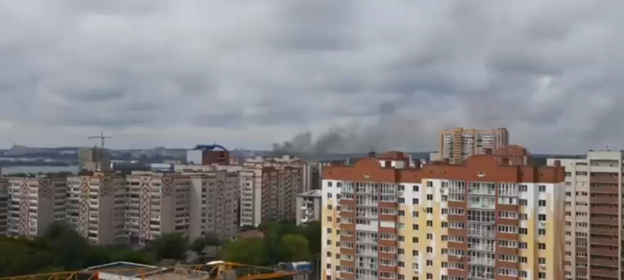
Ukraine's allies invest in drone production, while Russia loses its war machine
Leading Ukrainian historian Plokhii steps down from top Harvard post after 12 years
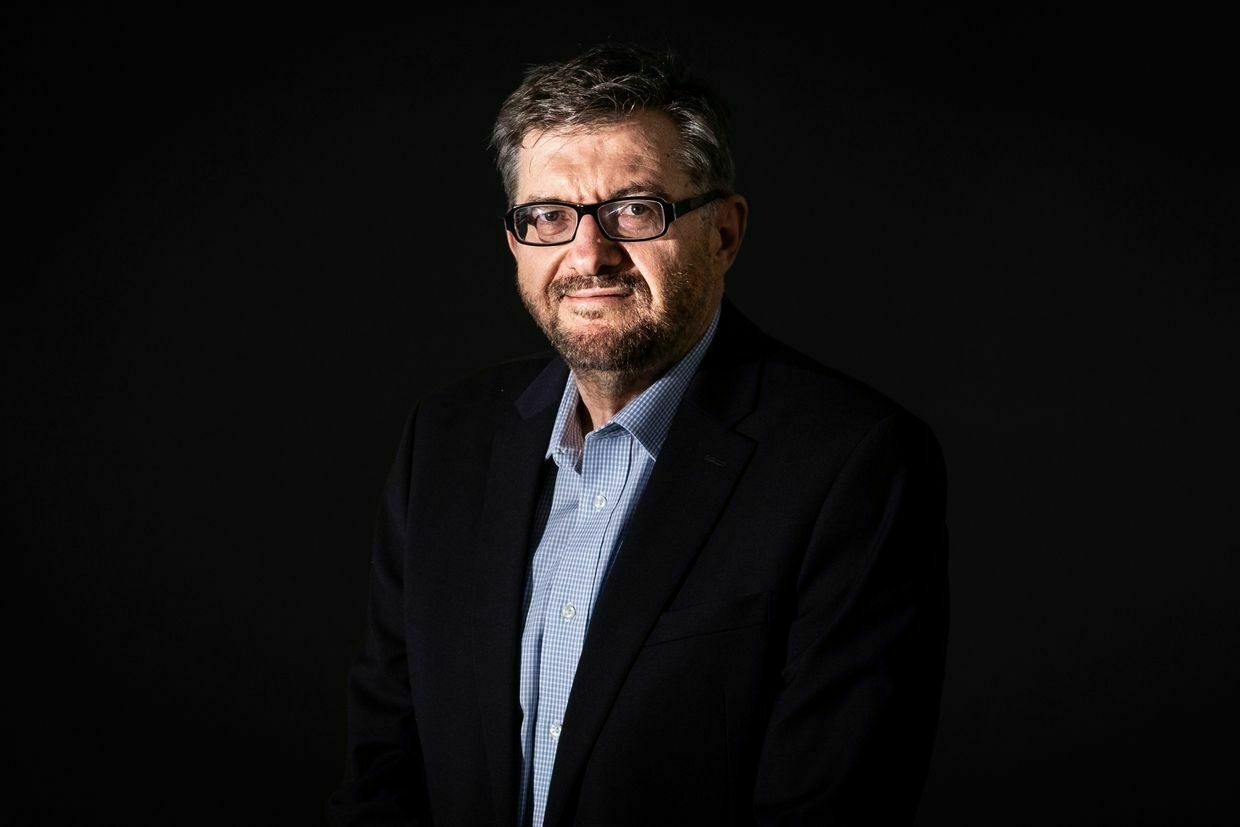
Serhii Plokhii, a renowned scholar of Ukrainian history, is stepping down as director of the Ukrainian Research Institute at Harvard University (HURI) after 12 years of leadership, the institute announced on June 30.
“It has been a privilege and an honor to lead the Institute over the past 12 years,” Plokhii said in a farewell message.
Plokhii is one of the leading experts on the history of Eastern Europe. Born to a Ukrainian family in Russia, he has lived in Ukraine for 35 years and has written several best-selling books on the subject, including “The Gates of Europe: A History of Ukraine” and “The Last Empire: The Final Days of the Soviet Union."
Plokhii expressed gratitude to colleagues, staff, and supporters and offered best wishes to historian Terry Martin, who will assume the role of director in the upcoming academic year.
“Years marked by the anxiety and challenges of war, but also by the opportunities that institutions like HURI offer to advance what Harvard’s motto calls ‘good knowledge’ about Ukraine and the region."
The Ukrainian Research Institute, founded in 1973 through the support of the Ukrainian-American community, is the leading academic institution in the United States focused on Ukrainian studies.
Based at Harvard, HURI promotes research and scholarship on Ukraine’s history, culture, and politics through fellowships, conferences, digital initiatives, and its flagship journal, Harvard Ukrainian Studies.
Under Plokhii’s leadership, the Institute expanded its programming significantly, including the establishment of the Temerty Contemporary Ukraine Program in 2019, an initiative that became central to HURI’s academic response following Russia’s full-scale invasion of Ukraine in 2022.
The incoming director, Martin, is a scholar of Soviet history and professor of Russian studies.
Warfare in Ukraine has changed… againThe Kyiv Independent’s Francis Farrell explains a new modification of the standard first-person view (FPV) drone that already once transformed the way war is fought. Fiber optic cable now used to connect drone operators to FPVs ensures a perfect image and control experience all the way to the target — and cannot be spotted by enemy drone detectors.The Kyiv IndependentFrancis Farrell
